From Diagrams to Production via Process Orchestration Masterclass WebSummit 2024
A presentation at WebSummit in November 2024 in Lisbon, Portugal by Samantha Holstine

From Diagrams to Production via Process Orchestration Masterclass WebSummit 2024

Who’s this Guy? ■ Sr. Developer Advocate @Camunda ■ From: Jacksonville, FL Jacob Plicque @DuvalKingJacob He/Him ■ Fun Fact: Loves Video Games, Huge Nerd, Tabletop RPG Fan (like Dungeons and Dragons) has a Dice Collection in the Thousands

Who am I? ■ Developer Advocate @ Camunda ■ Denver, CO, United States Samantha Holstine @sholstine620 she/her ■ Fun fact: I’m a dance fitness and studio rowing instructor in my free time

Agenda ■ Developers and Architects: a world apart? ■ How can Architects and Developers work together? ■ What is Process Orchestration? ■ How Process Orchestration fills the gaps between both roles


Developer

Example: Claim handling

Scenario 🗣 C Suite 😎 Architect Developer
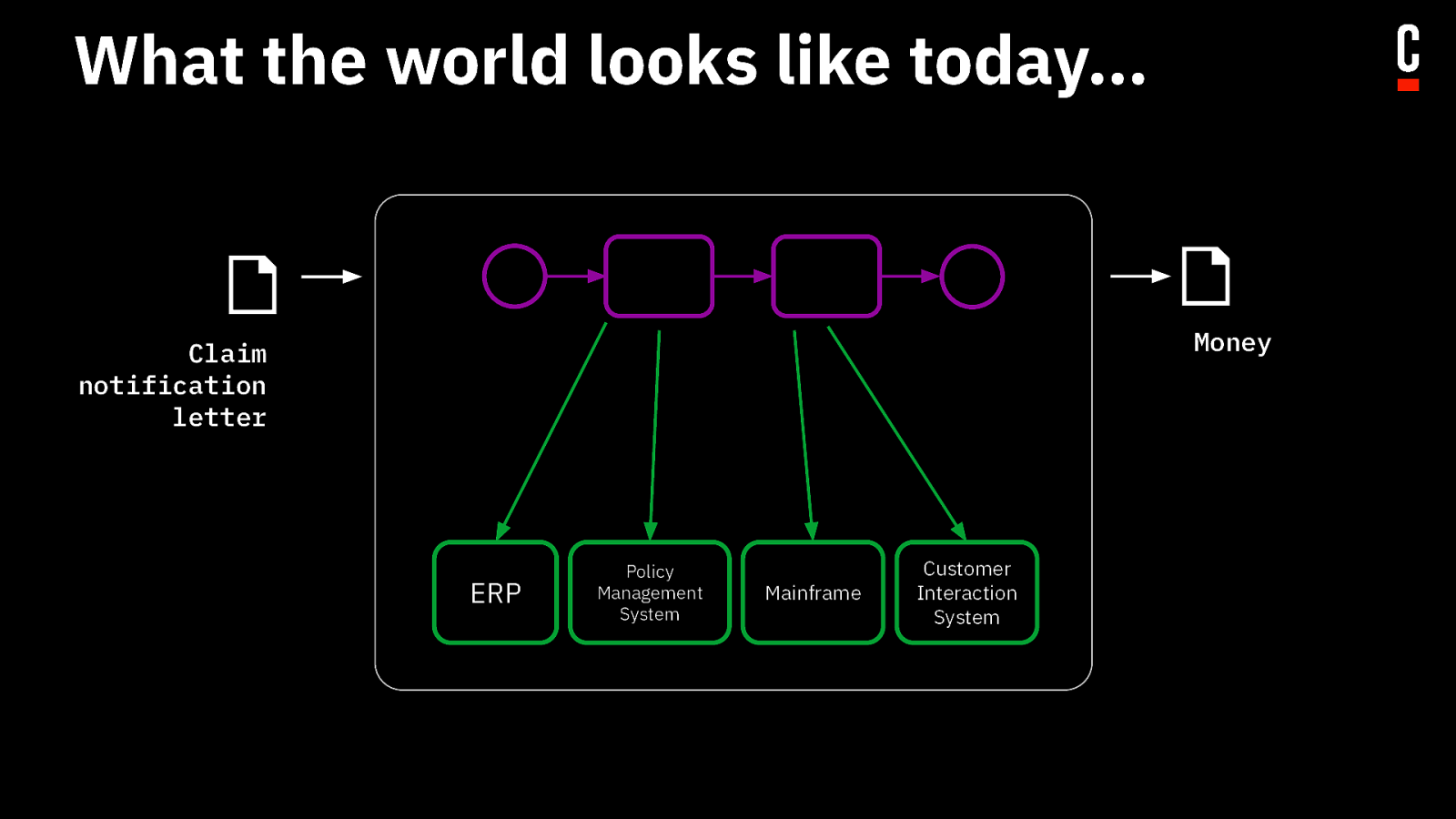
What the world looks like today… Money Claim notification letter ERP Policy Management System Mainframe Customer Interaction System

10

“Spaghetti” architecture Grown over time Brittle of Lack ility b visi into o-end t end- sses e proc → Hard to innovate and transform

…but, you need to innovate and transform Pressure to innovate quickly Pressure to transform and future-proof

Automations AI And now, also “Point Agents” AI More silos + technical debt!
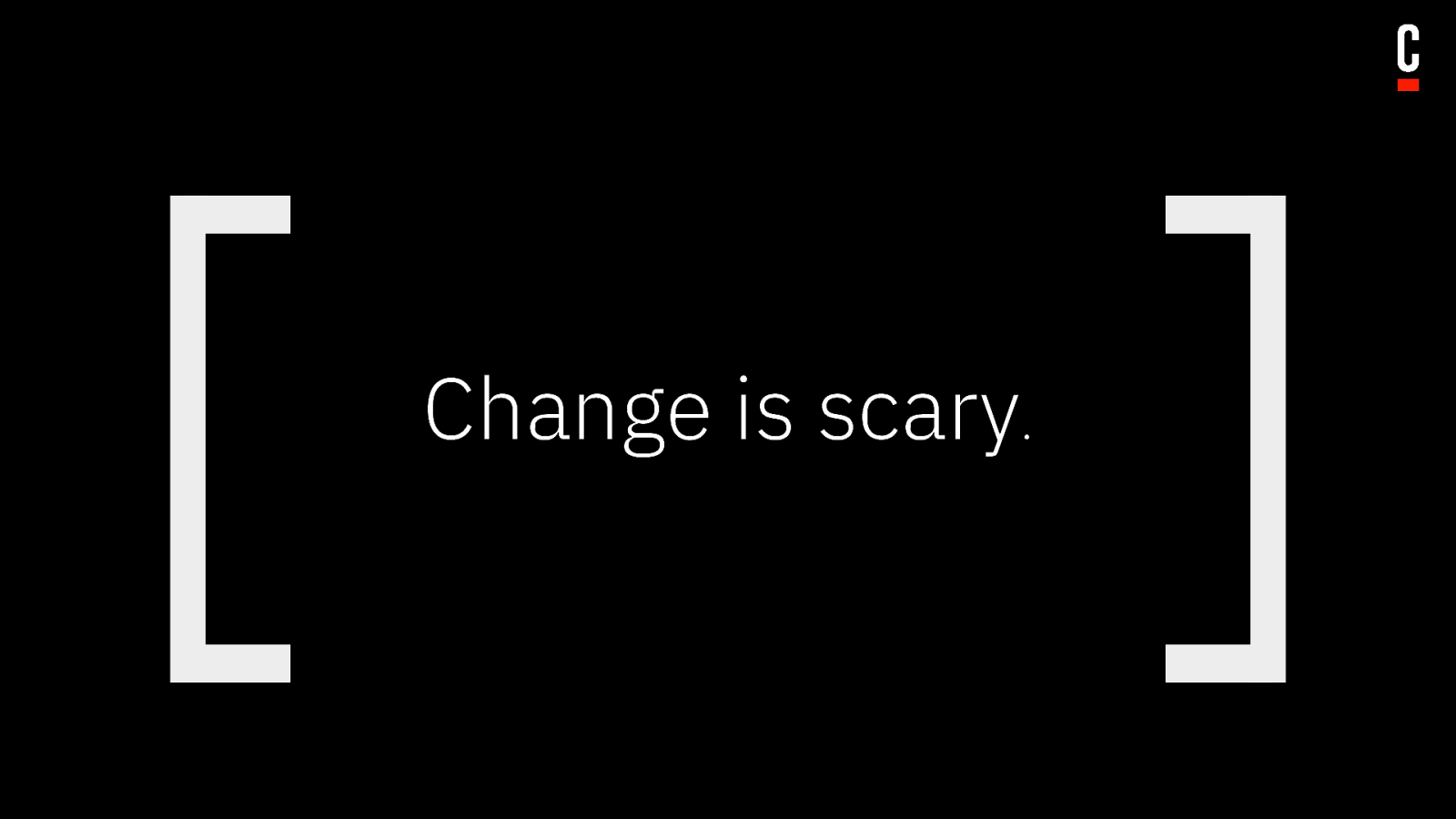
Change is scary.

So what’s this Process Orchestration?
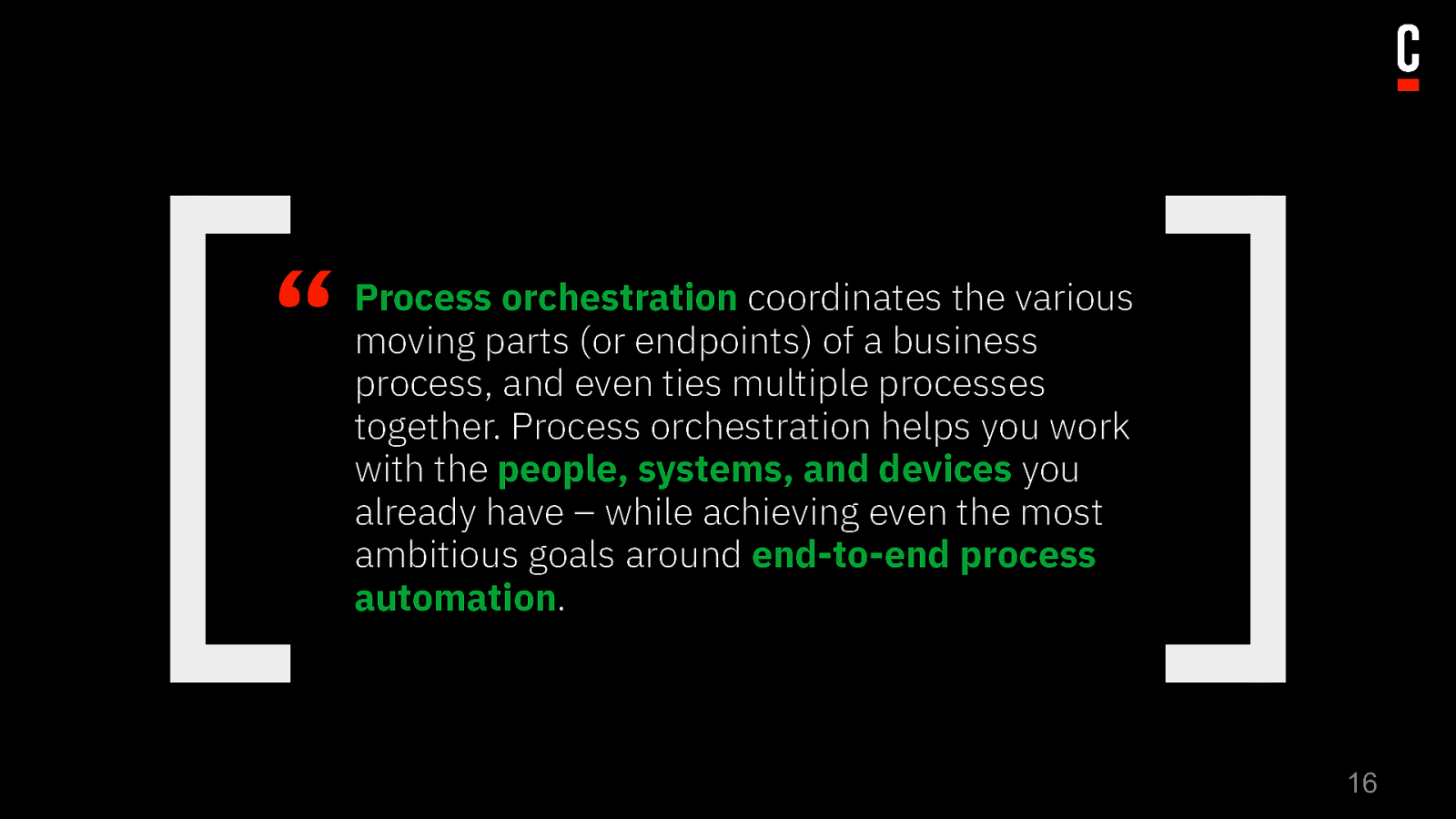
“ Process orchestration coordinates the various moving parts (or endpoints) of a business process, and even ties multiple processes together. Process orchestration helps you work with the people, systems, and devices you already have – while achieving even the most ambitious goals around end-to-end process automation. 16
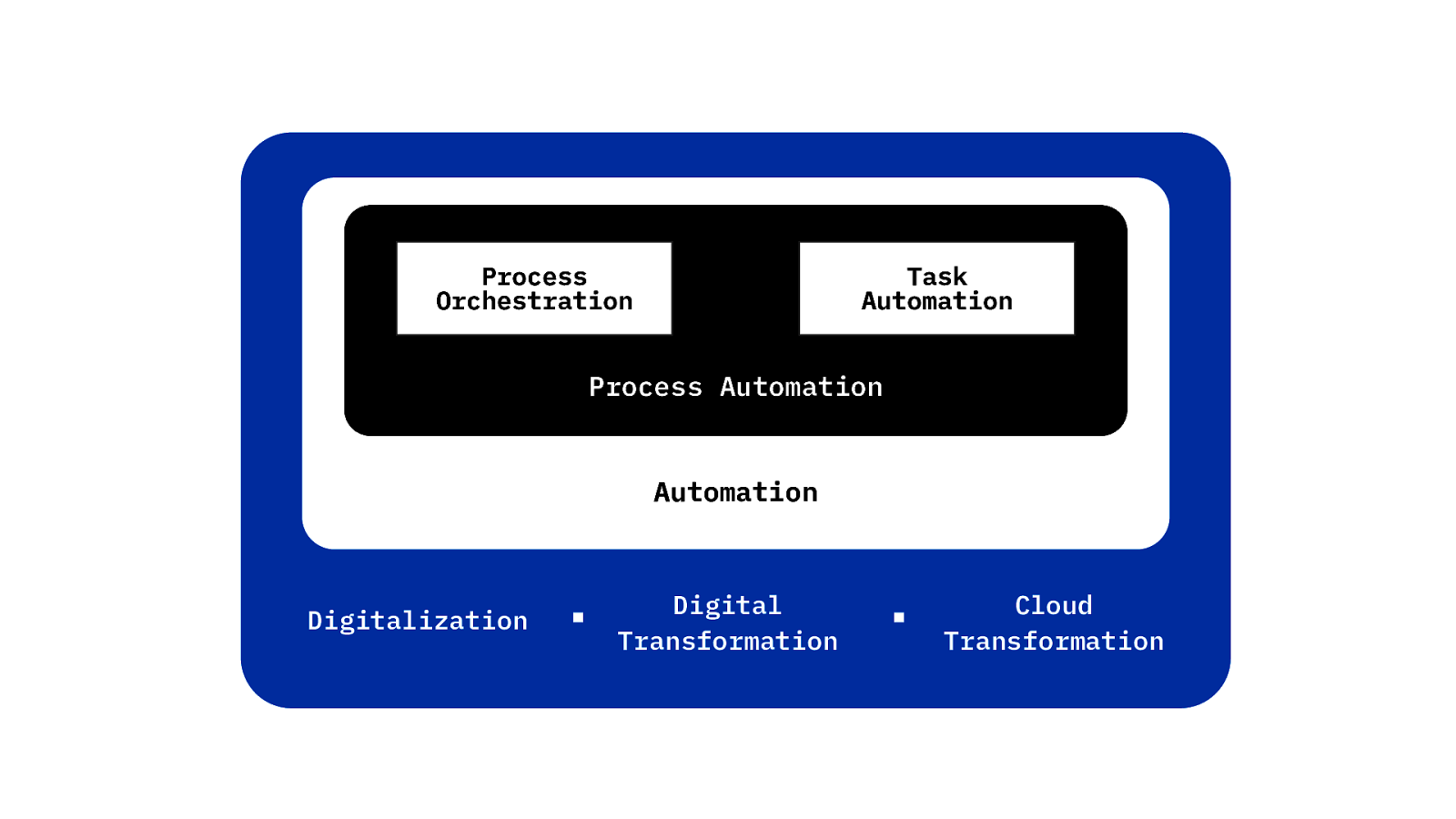
Process Orchestration Task Automation Process Automation Automation Digitalization Digital Transformation Cloud Transformation

Task Automation Process Orchestration

Bus s P o s M e l Introducing BPMNan N ti Maintained spec Visualization Bridge communication ISO/IEC 19510 spec maintained by OMG (Object Management Group) Easily understand complex processes; no more spaghetti! Simplify discussions with stakeholders; unify design and implementation
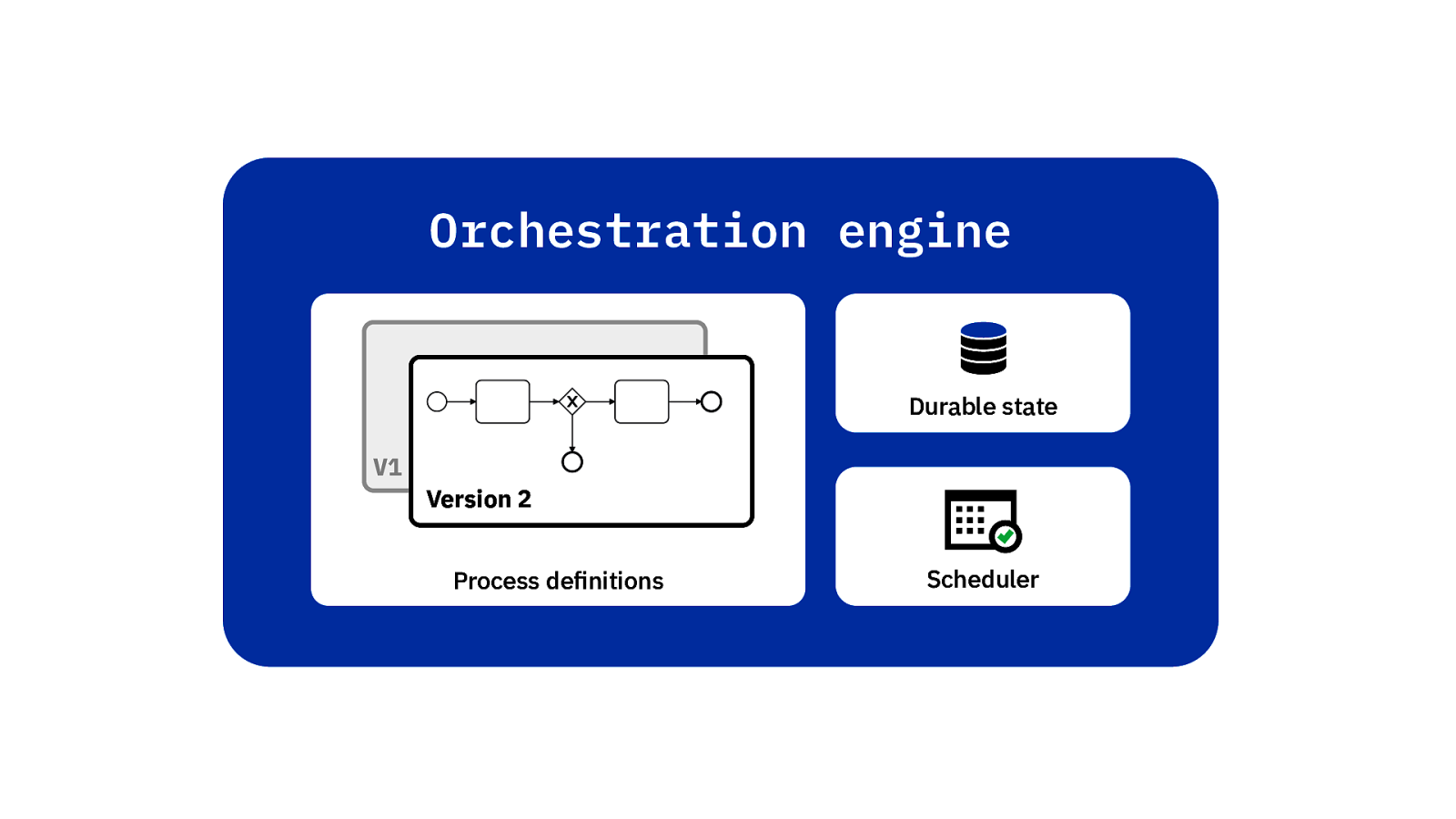
Orchestration engine Durable state V1 Version 1 Version 2 Process definitions Scheduler
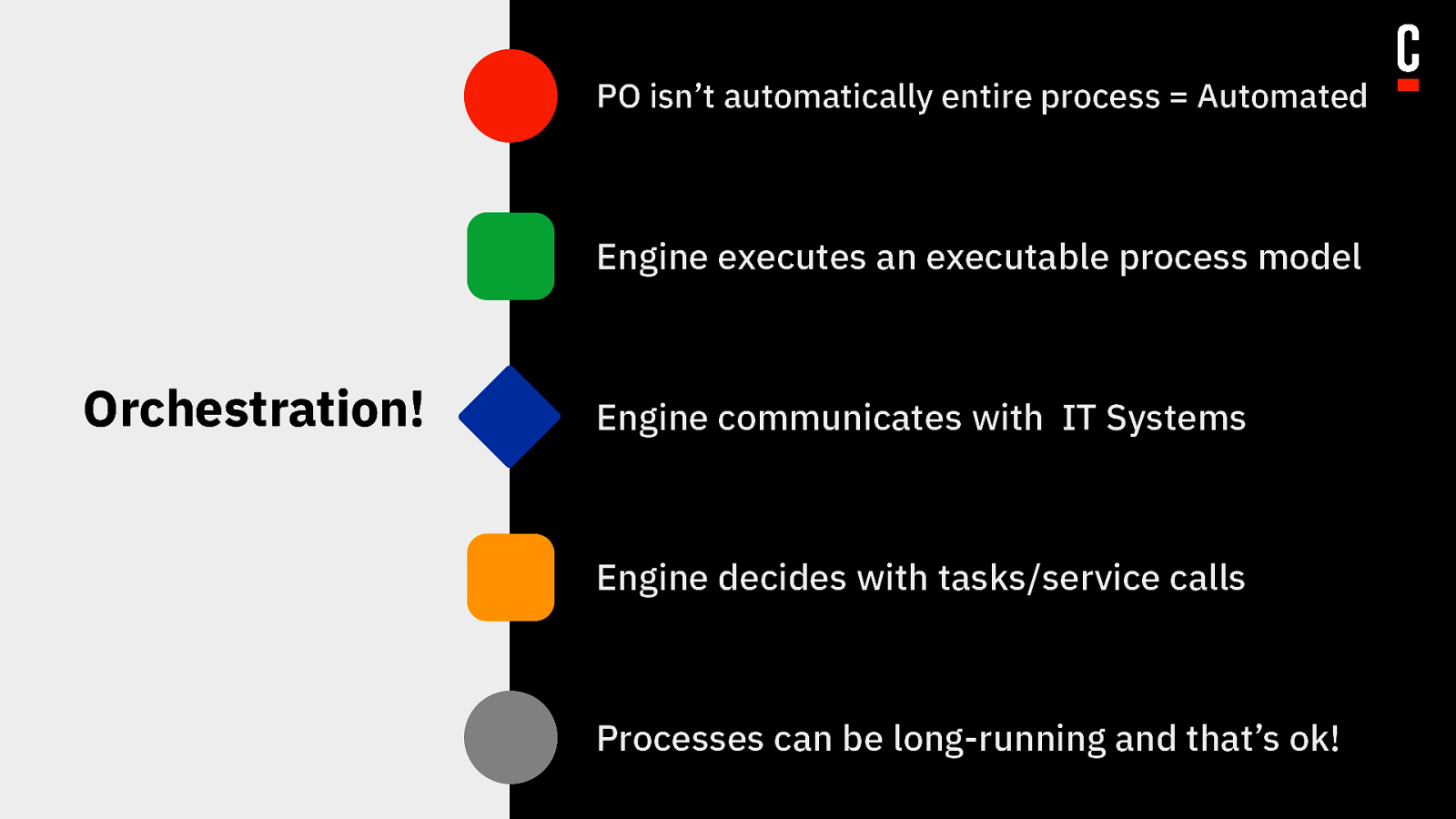
PO isn’t automatically entire process = Automated Engine executes an executable process model Orchestration! Engine communicates with IT Systems Engine decides with tasks/service calls Processes can be long-running and that’s ok!
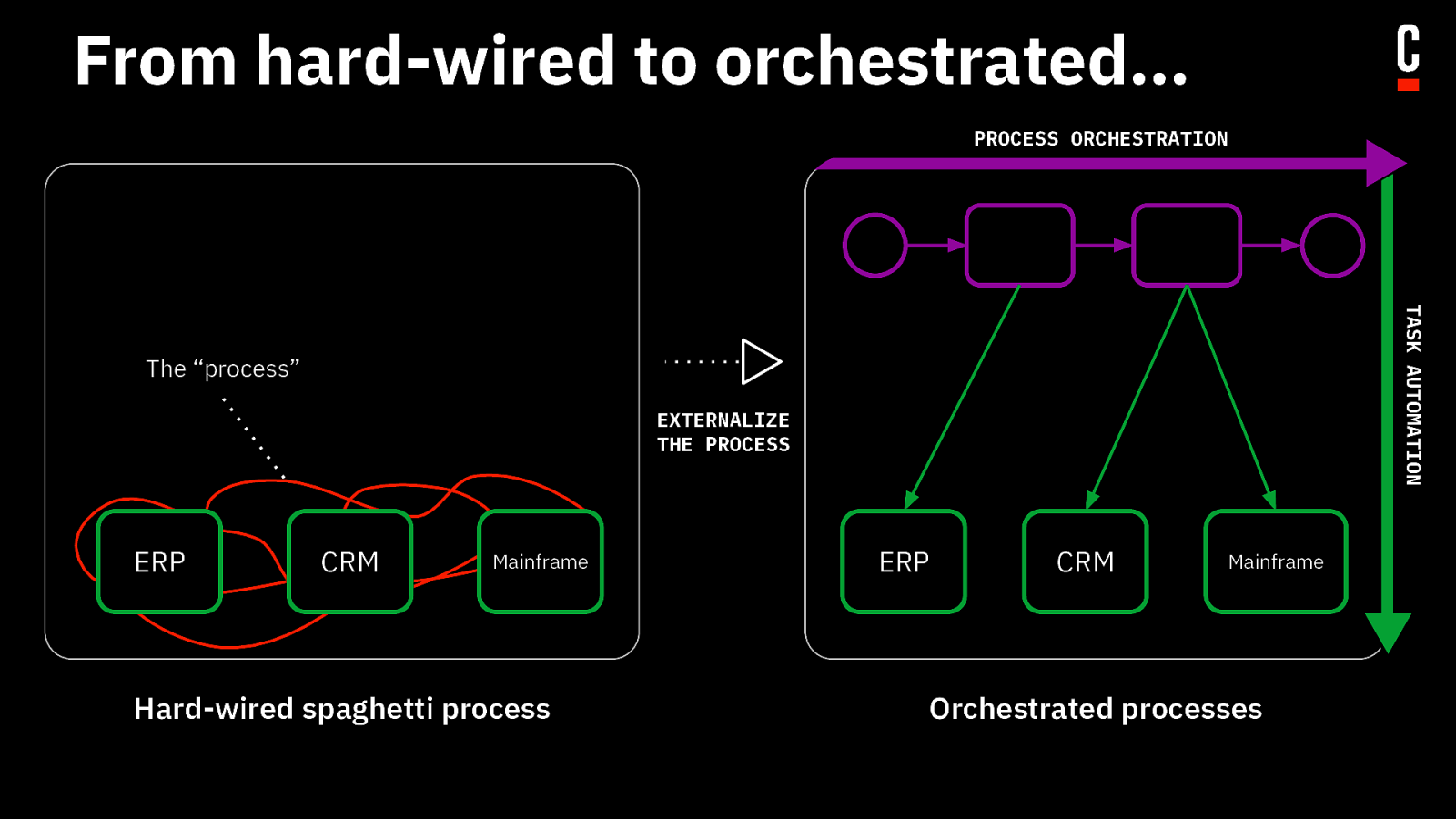
From hard-wired to orchestrated… PROCESS ORCHESTRATION TASK AUTOMATION The “process” EXTERNALIZE THE PROCESS ERP CRM Mainframe Hard-wired spaghetti process ERP CRM Mainframe Orchestrated processes
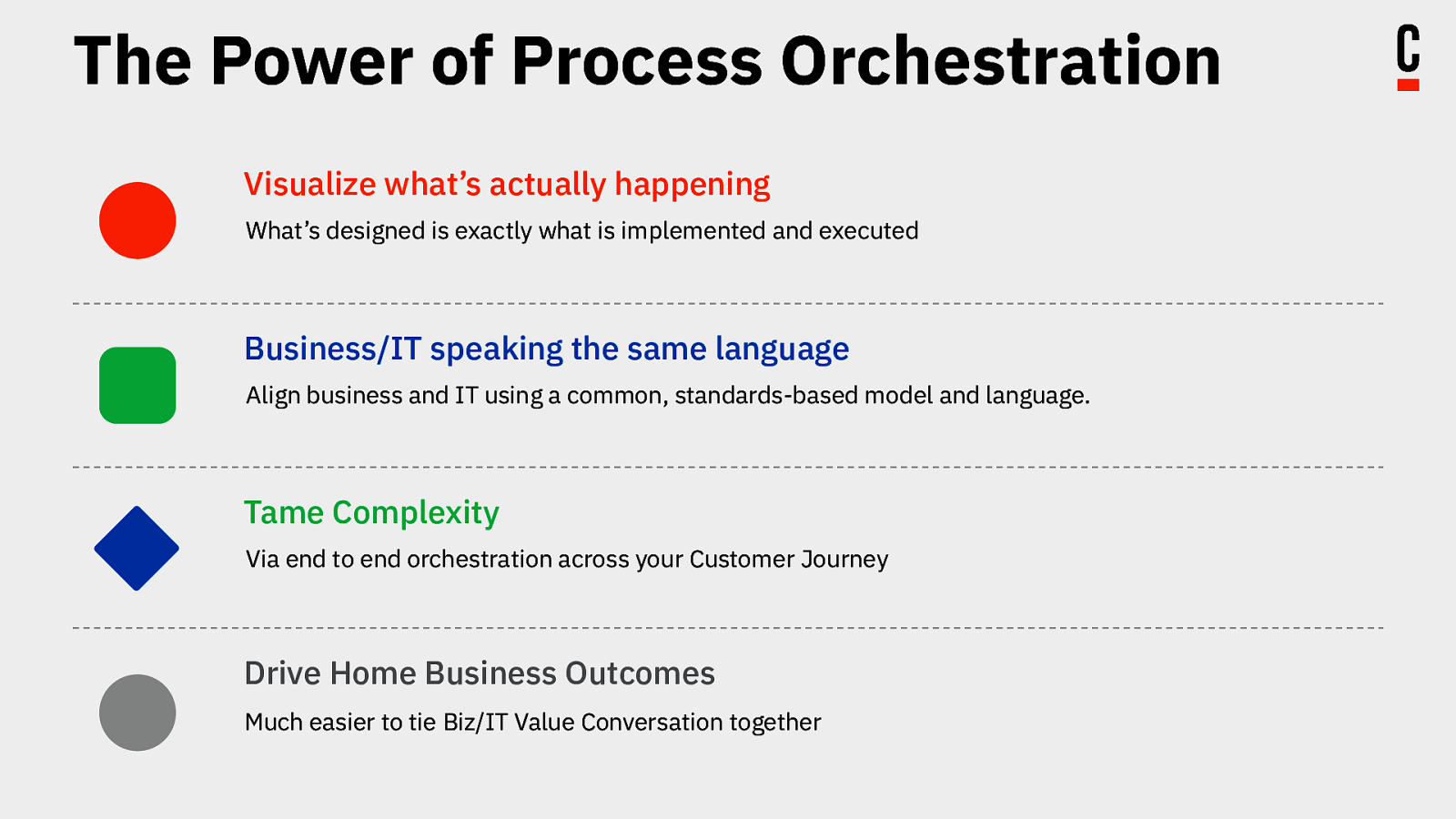
The Power of Process Orchestration Visualize what’s actually happening What’s designed is exactly what is implemented and executed Business/IT speaking the same language Align business and IT using a common, standards-based model and language. Tame Complexity Via end to end orchestration across your Customer Journey Drive Home Business Outcomes Much easier to tie Biz/IT Value Conversation together
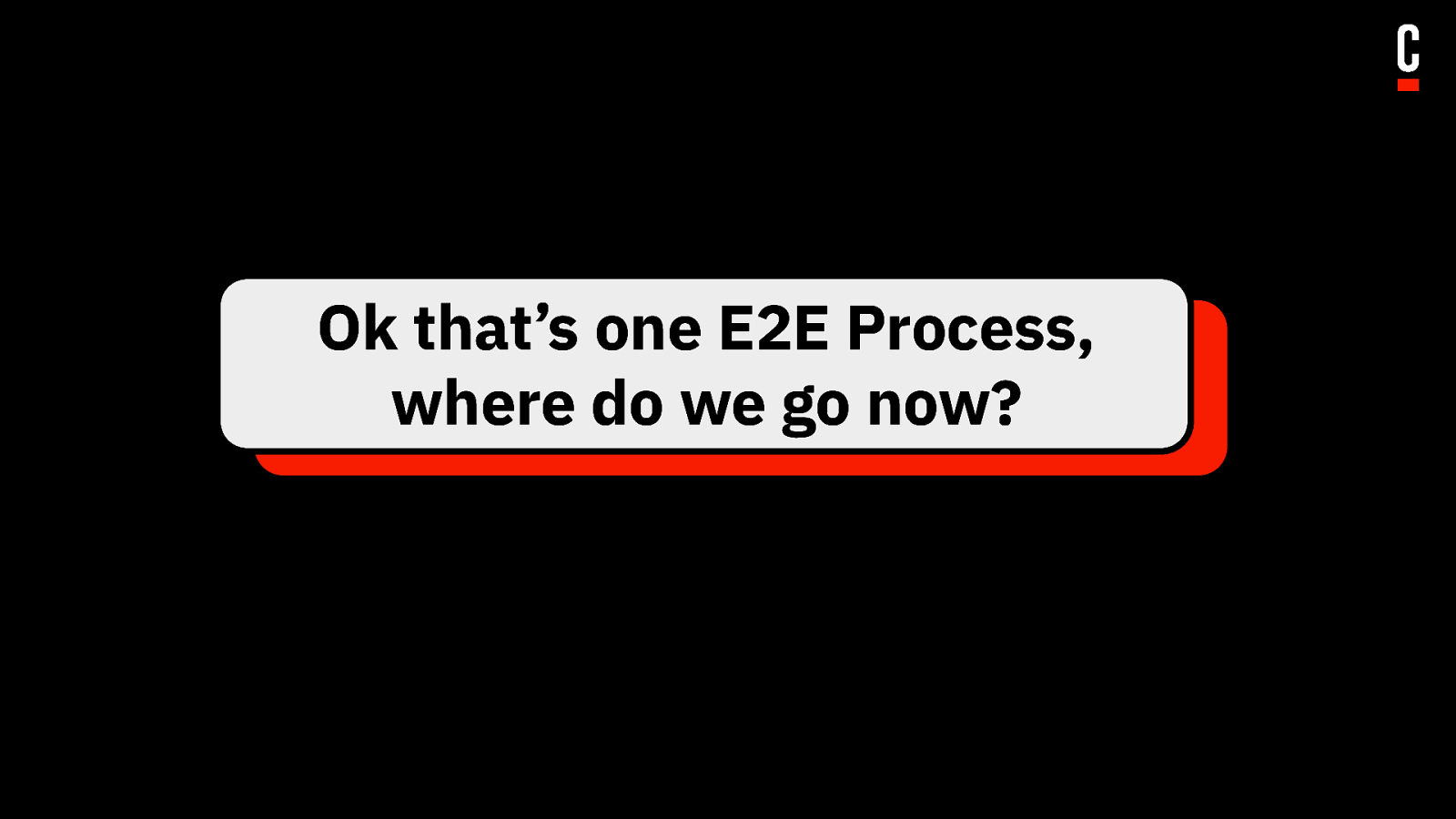
Ok that’s one E2E Process, where do we go now?
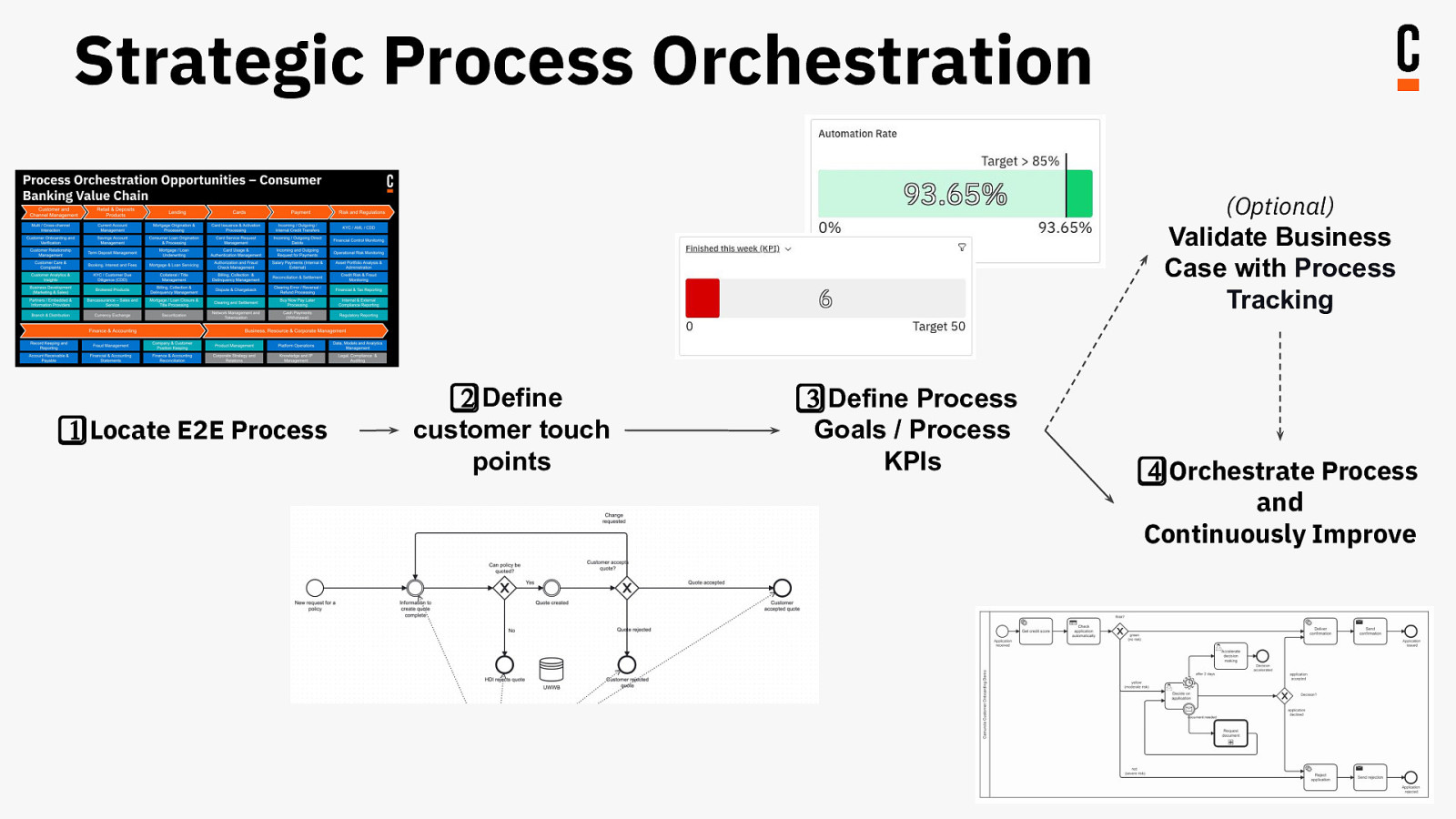
Strategic Process Orchestration (Optional) Validate Business Case with Process Tracking 1⃣ Locate E2E Process 2⃣ Define customer touch points 3⃣ Define Process Goals / Process KPIs 4⃣ Orchestrate Process and Continuously Improve 25
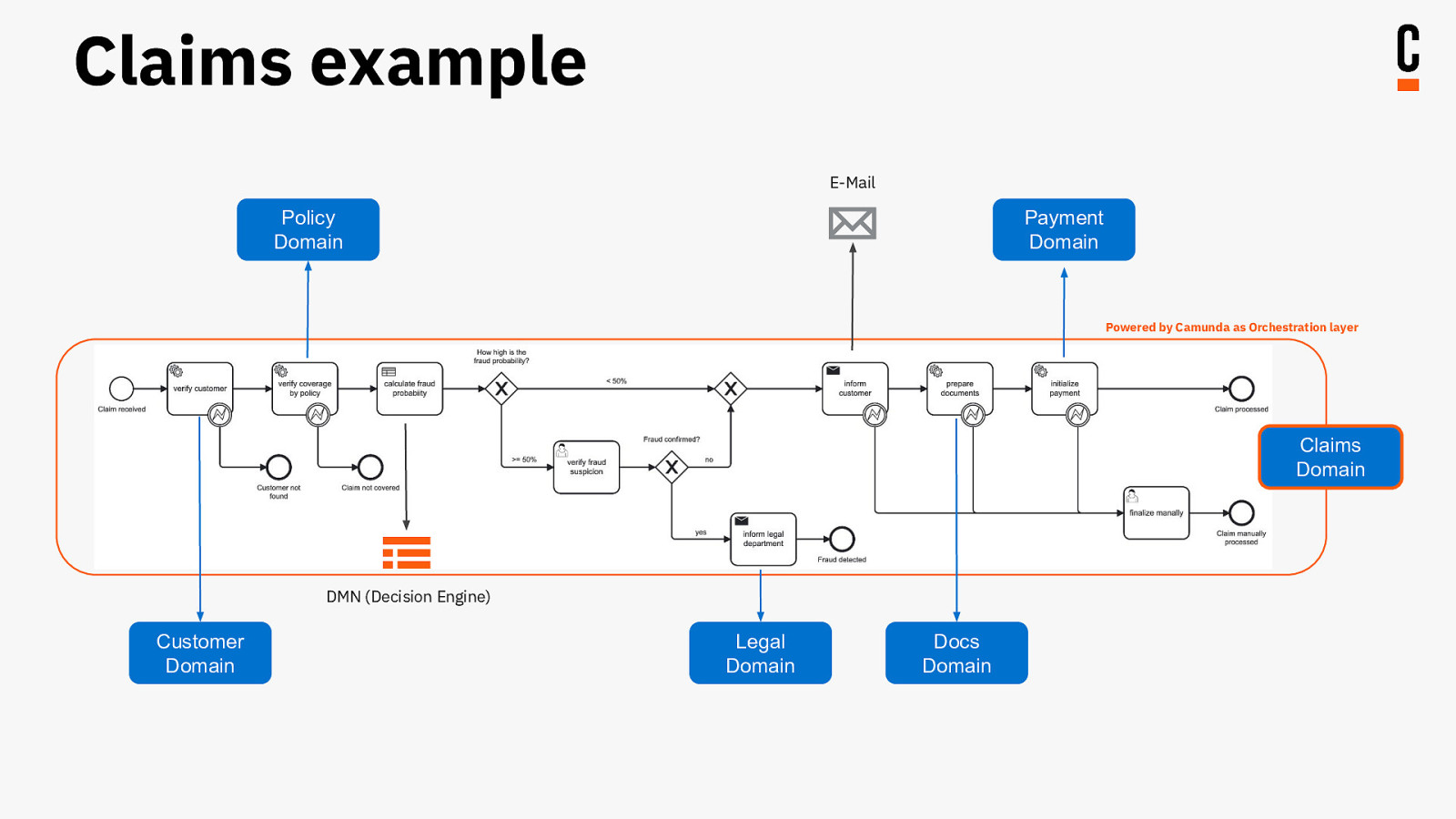
Claims example E-Mail Policy Domain Payment Domain Powered by Camunda as Orchestration layer Claims Domain DMN (Decision Engine) Customer Domain Legal Domain Docs Domain
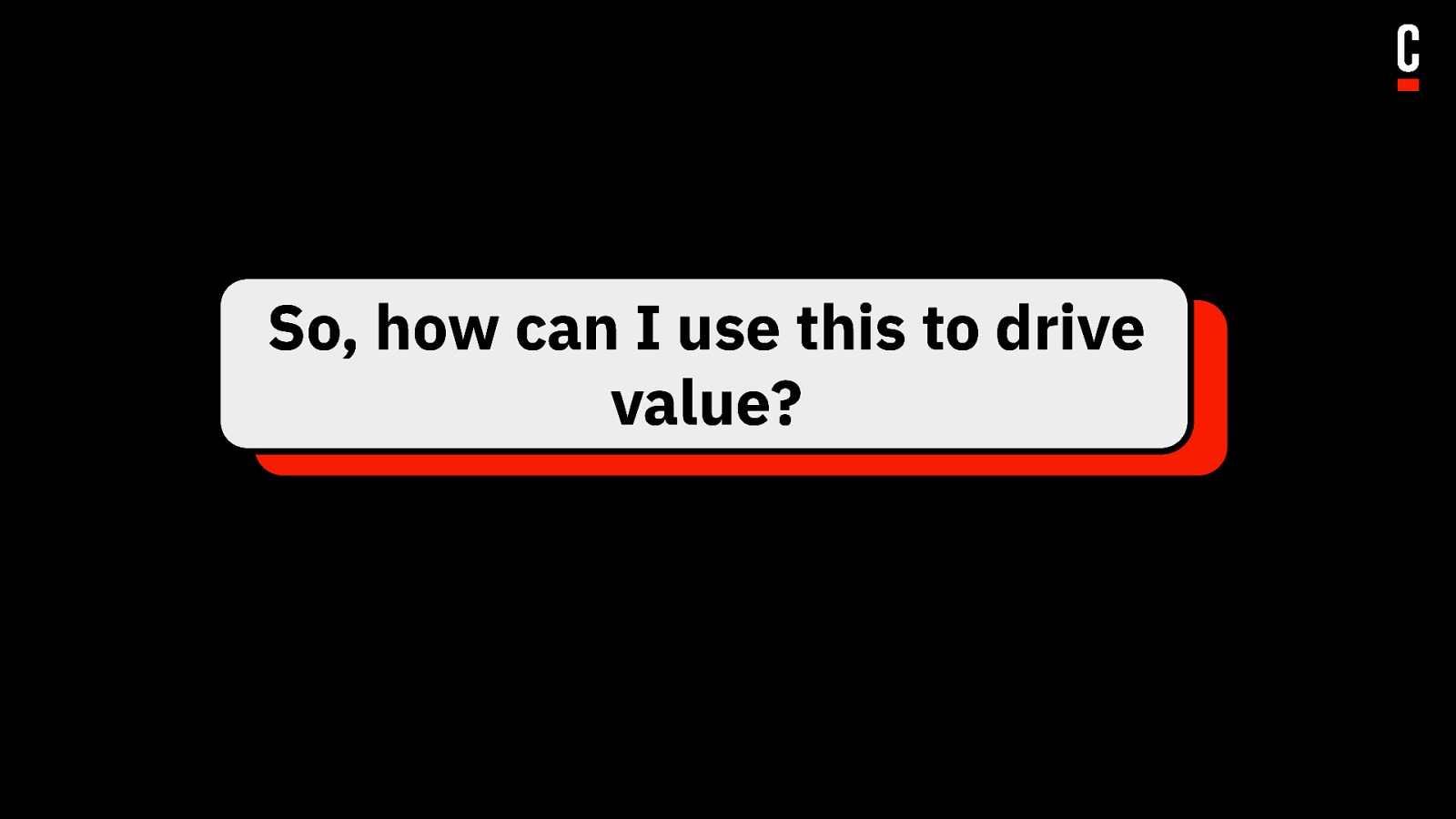
So, how can I use this to drive value?

CTO CIO CFO (S)VPs Strategy focus (S)VPs Directors COO LoB leaders Directors Enterprise architects Product owners Operational focus Solution architects Business analysts Software engineers Subject matter experts Operations managers End users / clerks IT Business 28
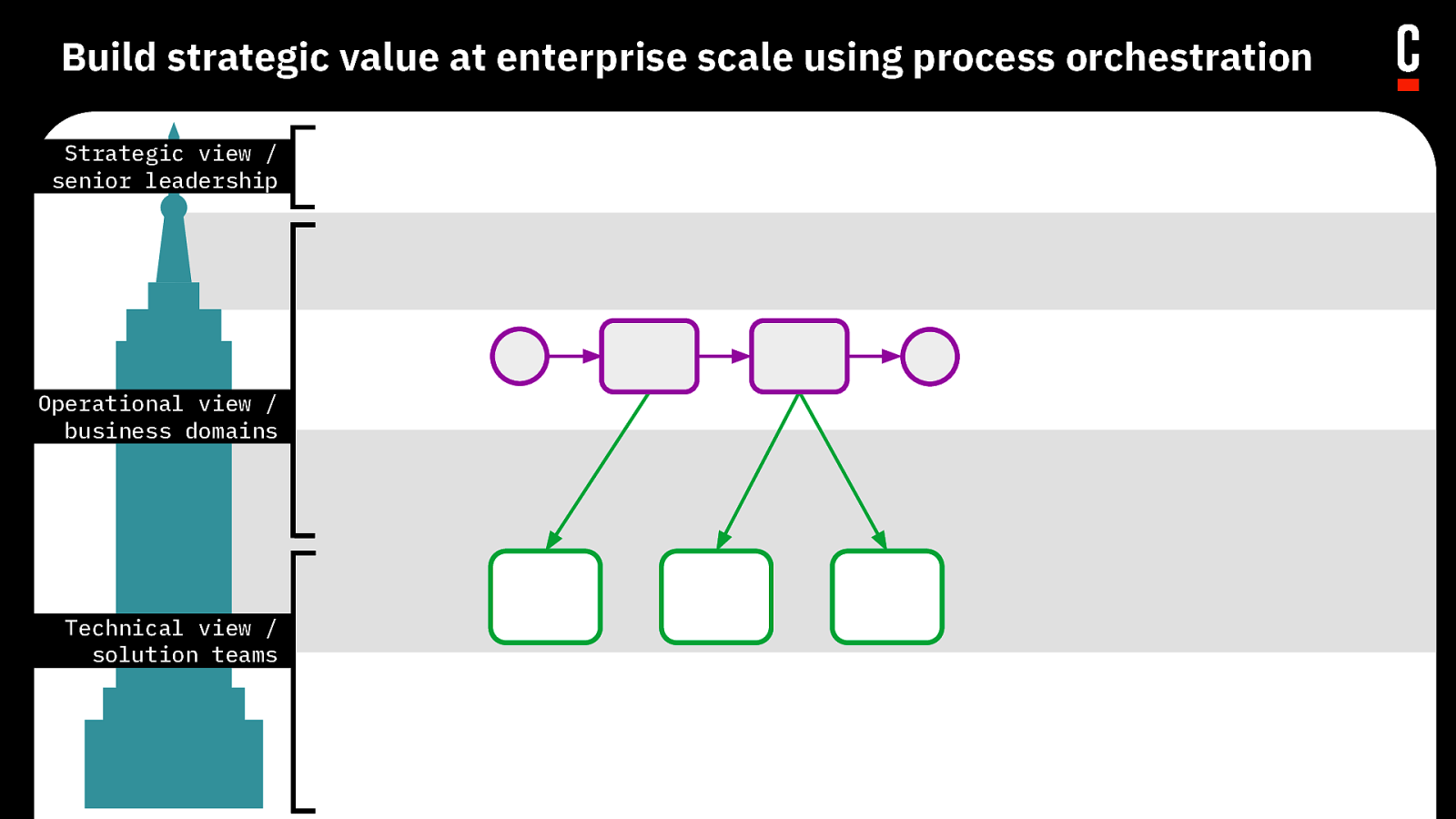
Build strategic value at enterprise scale using process orchestration Strategic view / senior leadership Operational view / business domains Technical view / solution teams
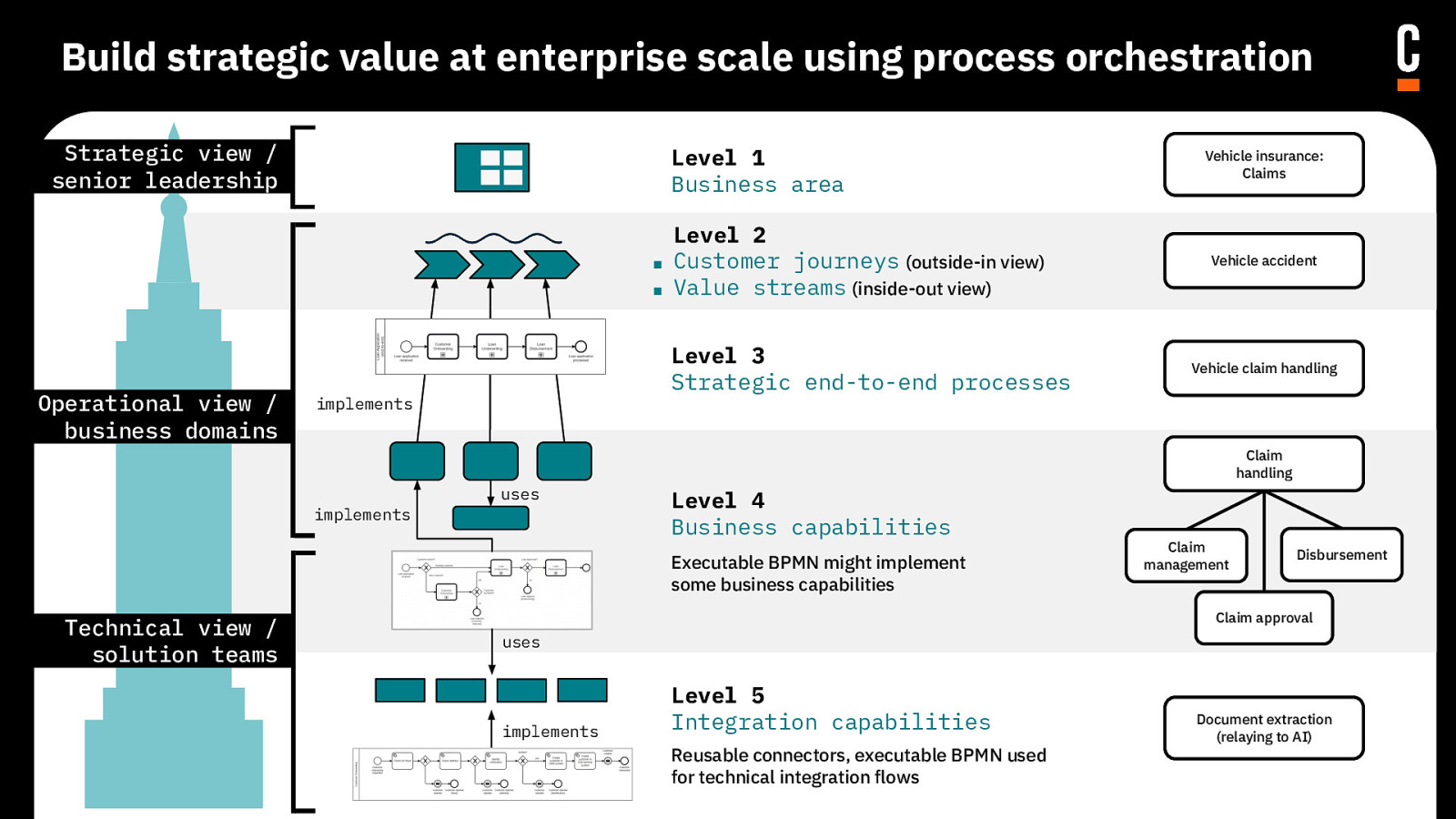
Build strategic value at enterprise scale using process orchestration Strategic view / senior leadership Level 1 Business area ■ ■ Operational view / business domains Level 2 Customer journeys (outside-in view) Value streams (inside-out view) Level 3 Strategic end-to-end processes implements Vehicle insurance: Claims Vehicle accident Vehicle claim handling Claim handling implements uses Level 4 Business capabilities Executable BPMN might implement some business capabilities Technical view / solution teams Claim management Disbursement Claim approval uses implements Level 5 Integration capabilities Reusable connectors, executable BPMN used for technical integration flows Document extraction (relaying to AI)
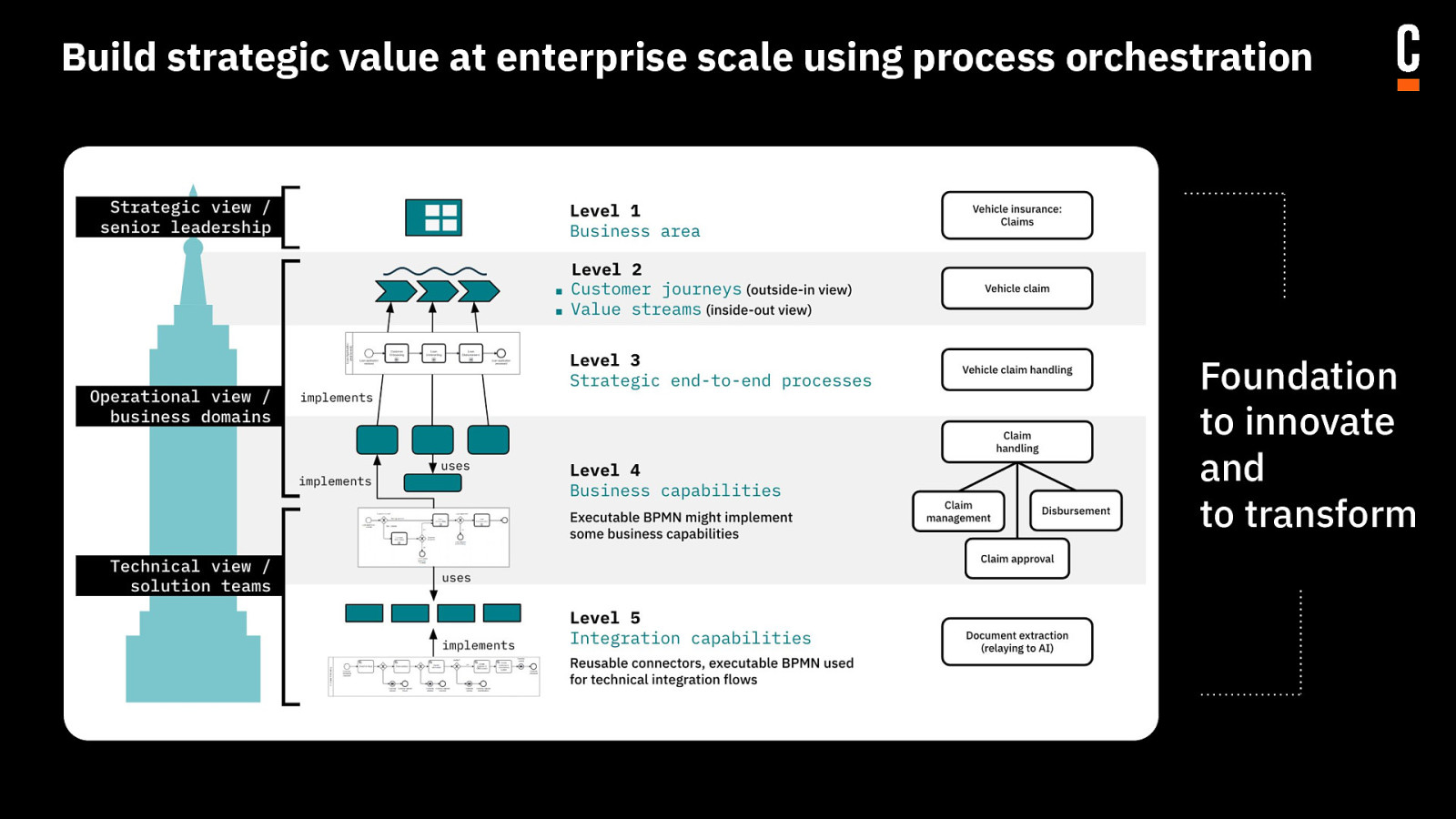
Build strategic value at enterprise scale using process orchestration Foundation to innovate and to transform
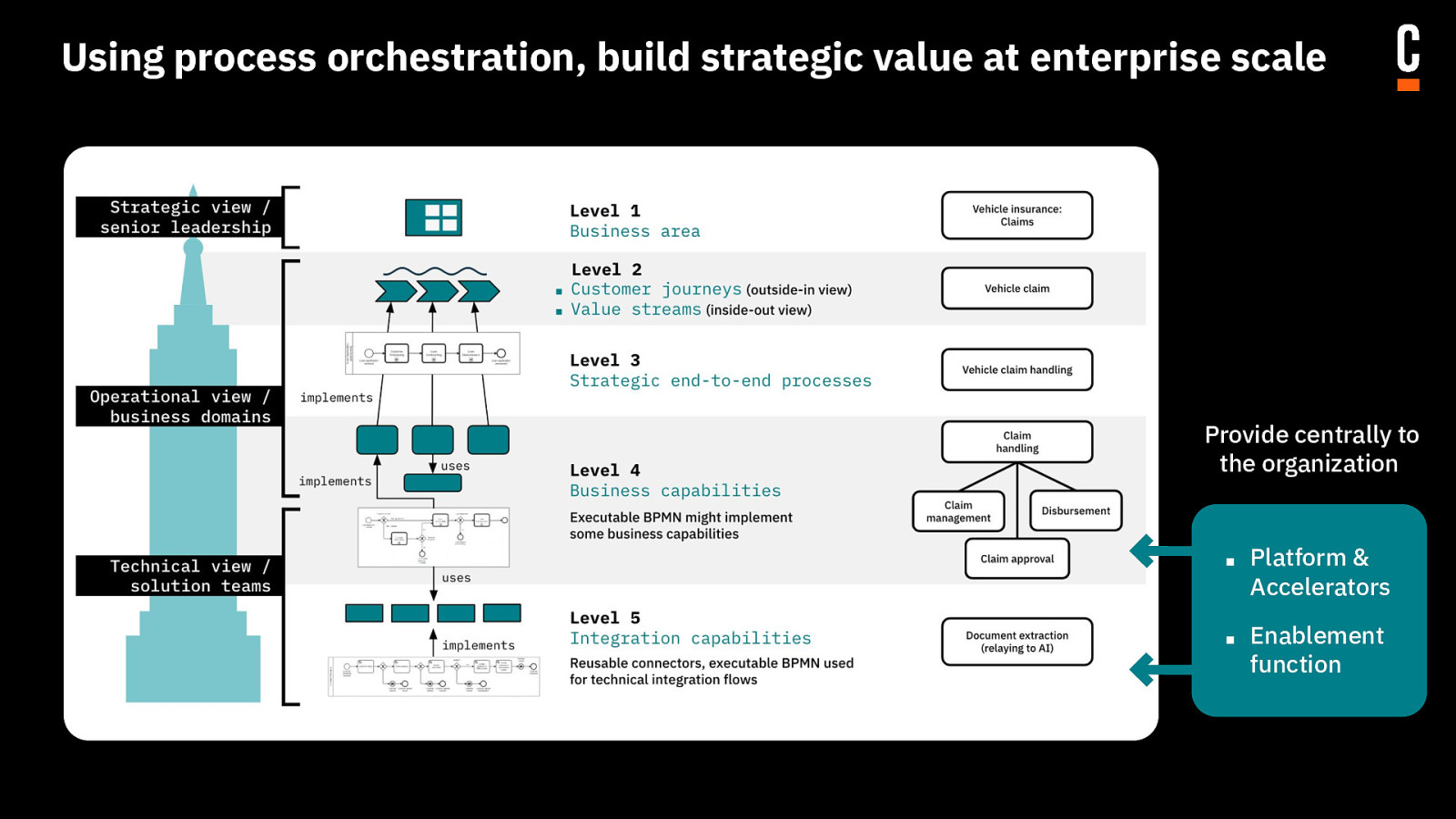
Using process orchestration, build strategic value at enterprise scale Provide centrally to the organization ■ Platform & Accelerators ■ Enablement function
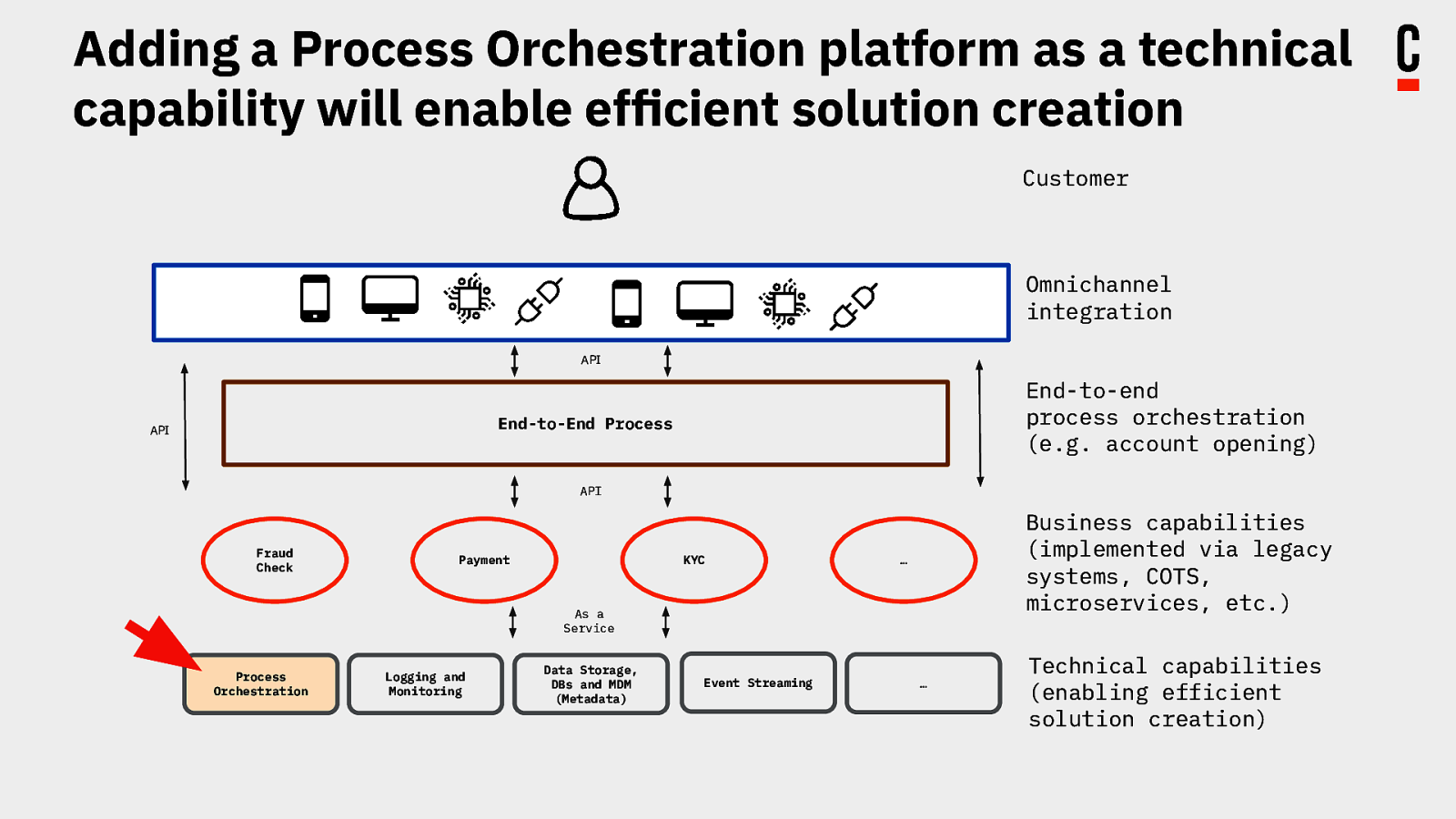
Adding a Process Orchestration platform as a technical capability will enable efficient solution creation Customer Omnichannel integration API End-to-end process orchestration (e.g. account opening) End-to-End Process API API Fraud Check Payment KYC Business capabilities (implemented via legacy systems, COTS, microservices, etc.) … As a Service Process Orchestration Logging and Monitoring Data Storage, DBs and MDM (Metadata) Event Streaming … Technical capabilities (enabling efficient solution creation)
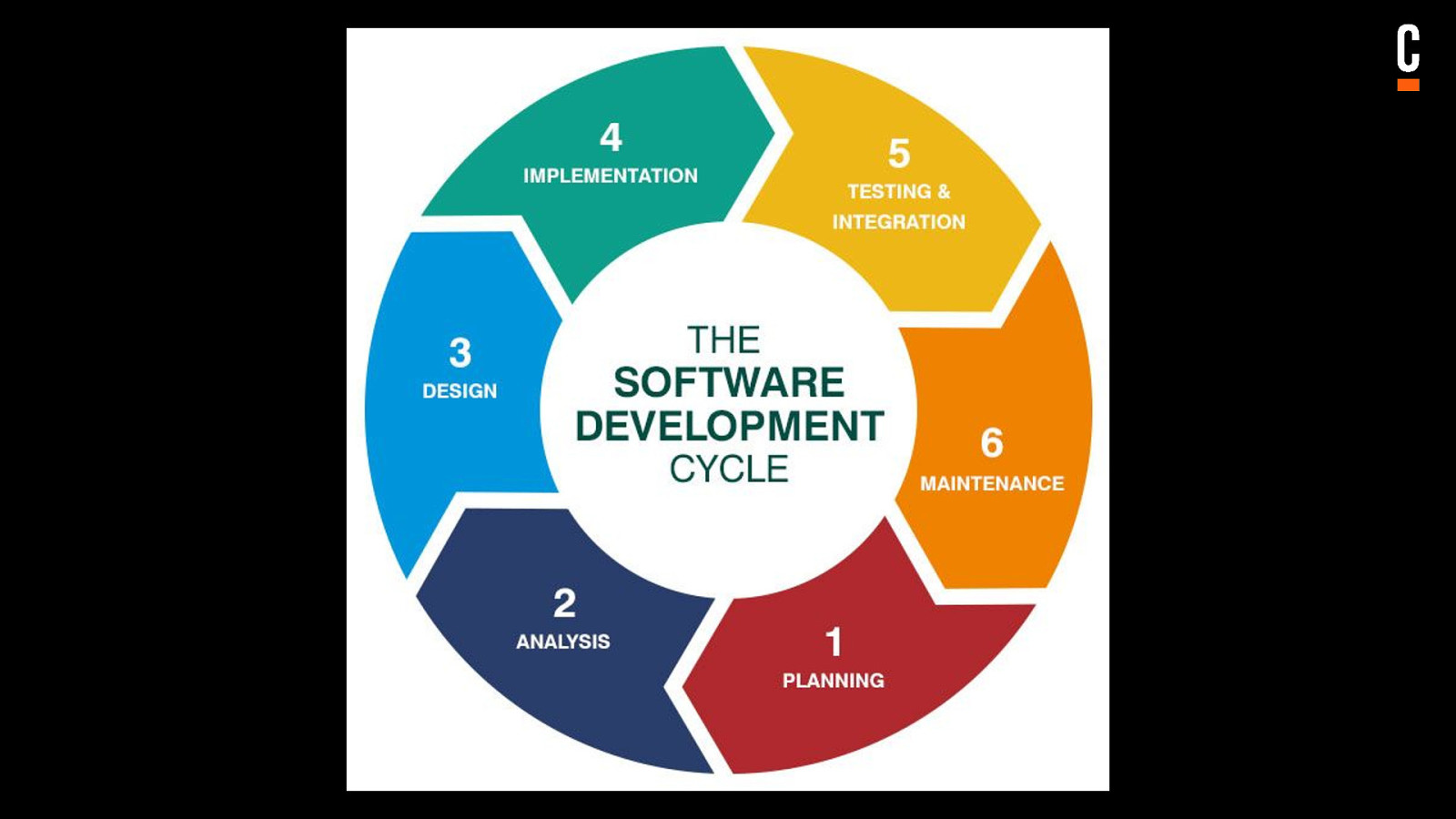
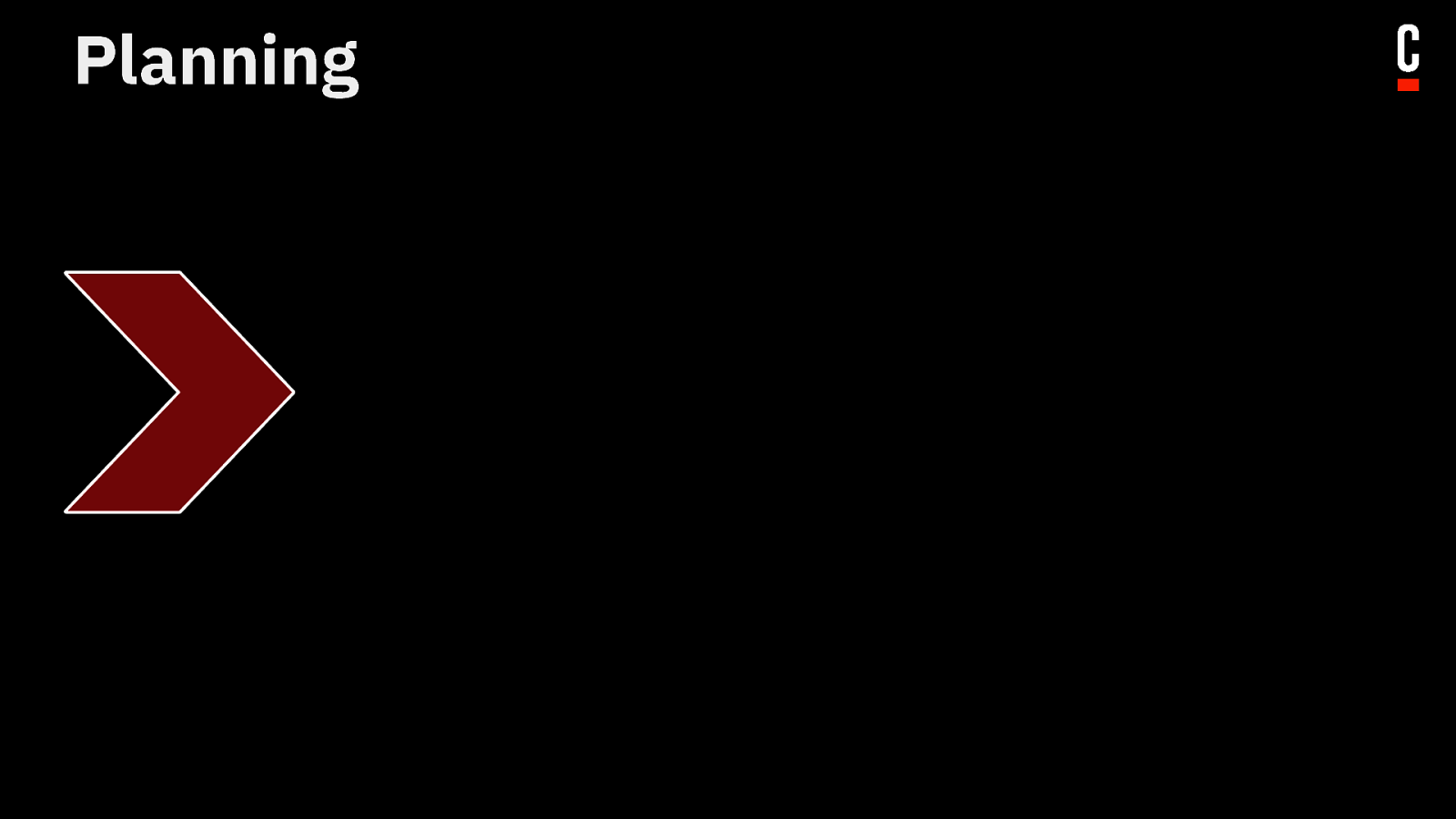
Planning
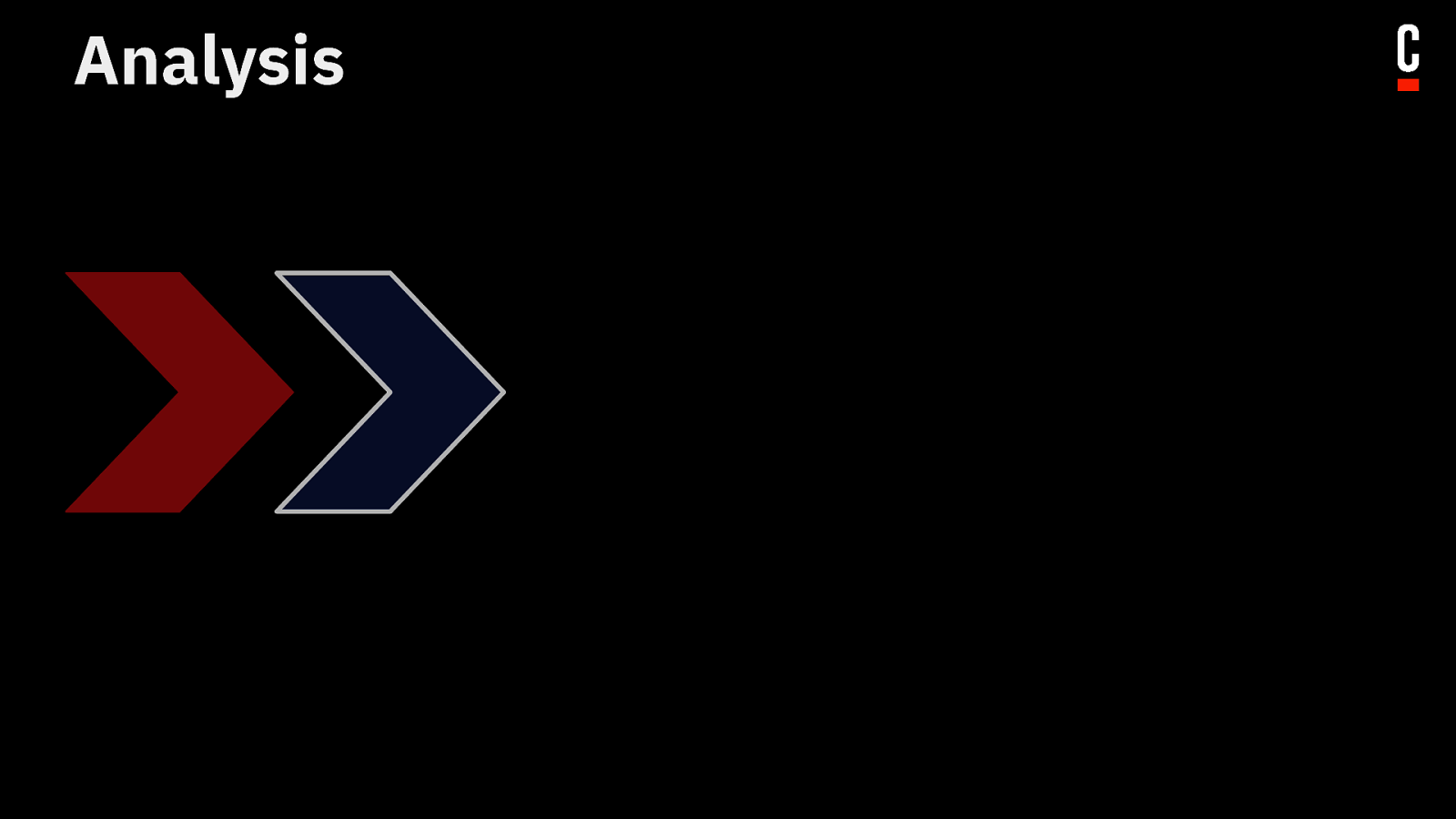
Analysis
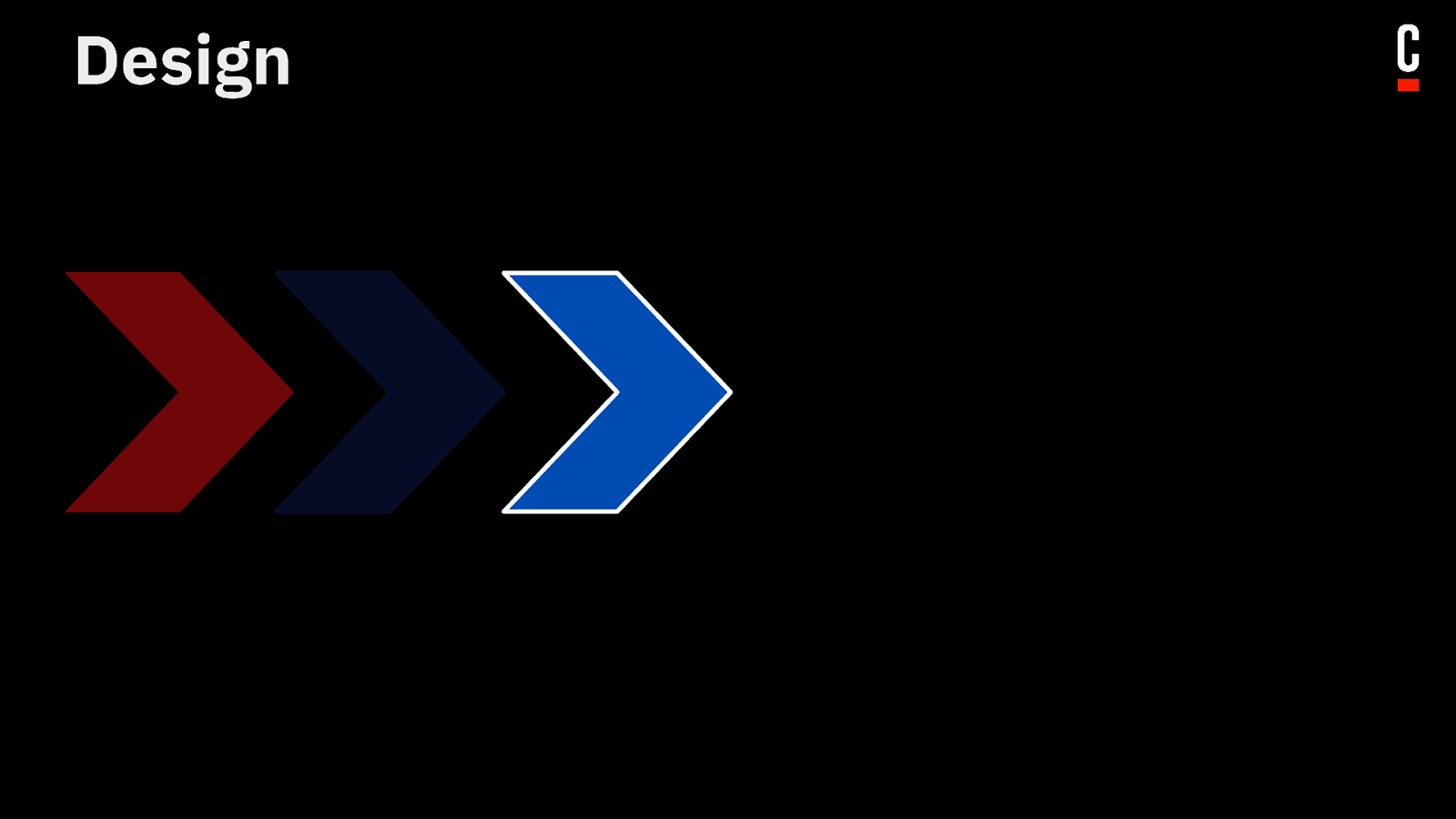
Design
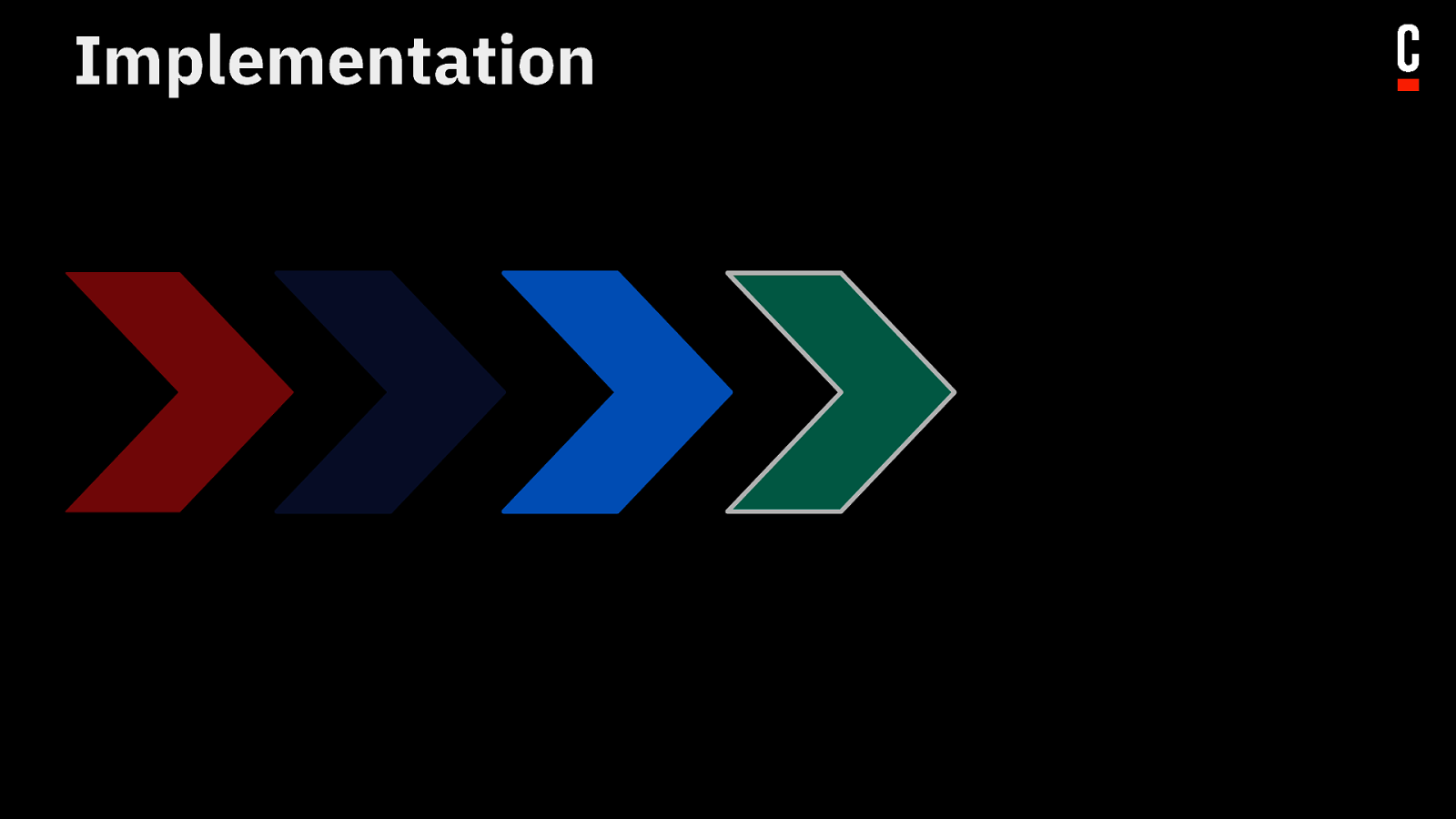
Implementation
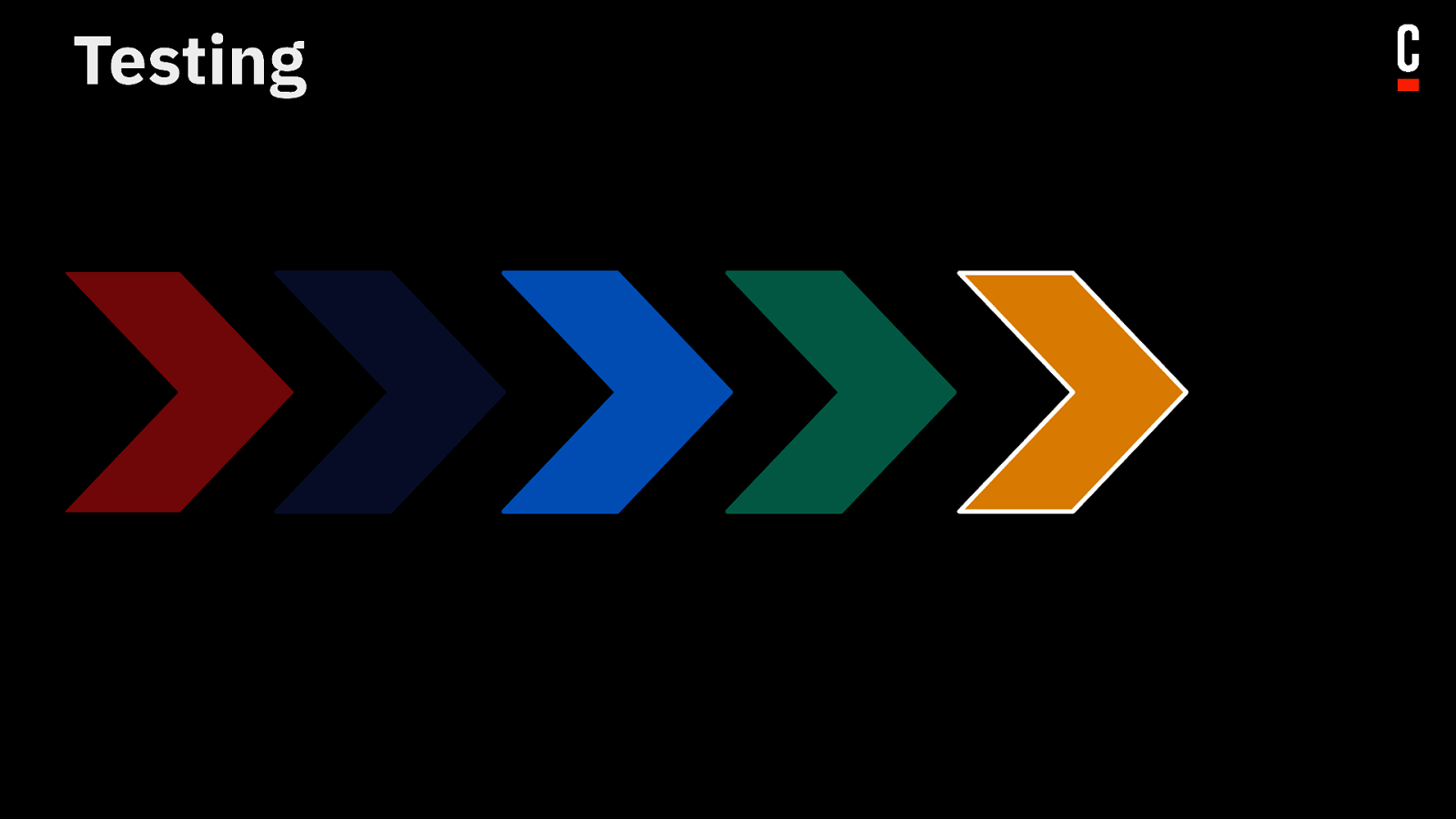
Testing
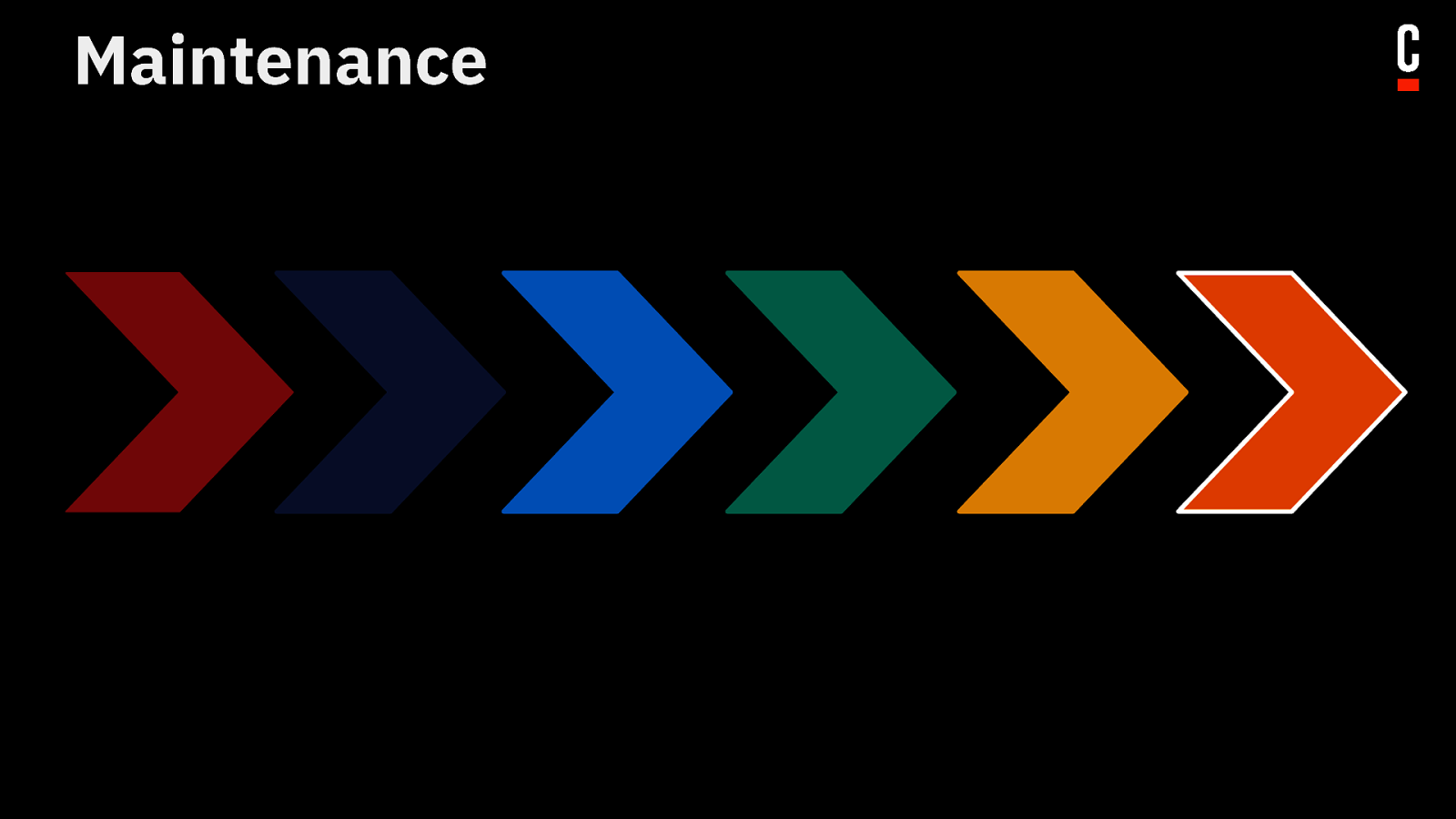
Maintenance
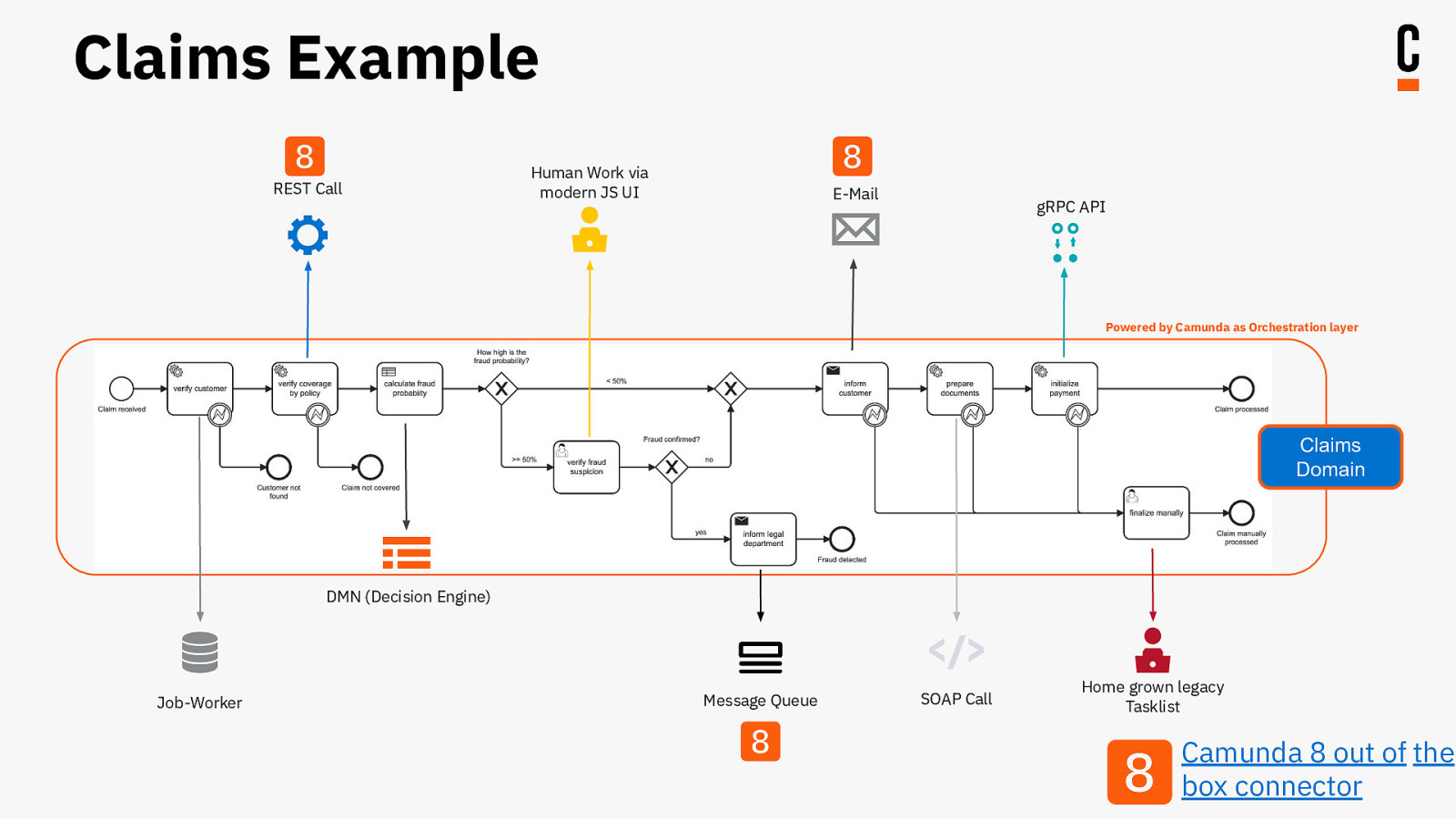
Claims Example REST Call Human Work via modern JS UI E-Mail gRPC API Powered by Camunda as Orchestration layer Claims Domain DMN (Decision Engine) Job-Worker Message Queue SOAP Call Home grown legacy Tasklist Camunda 8 out of the box connector
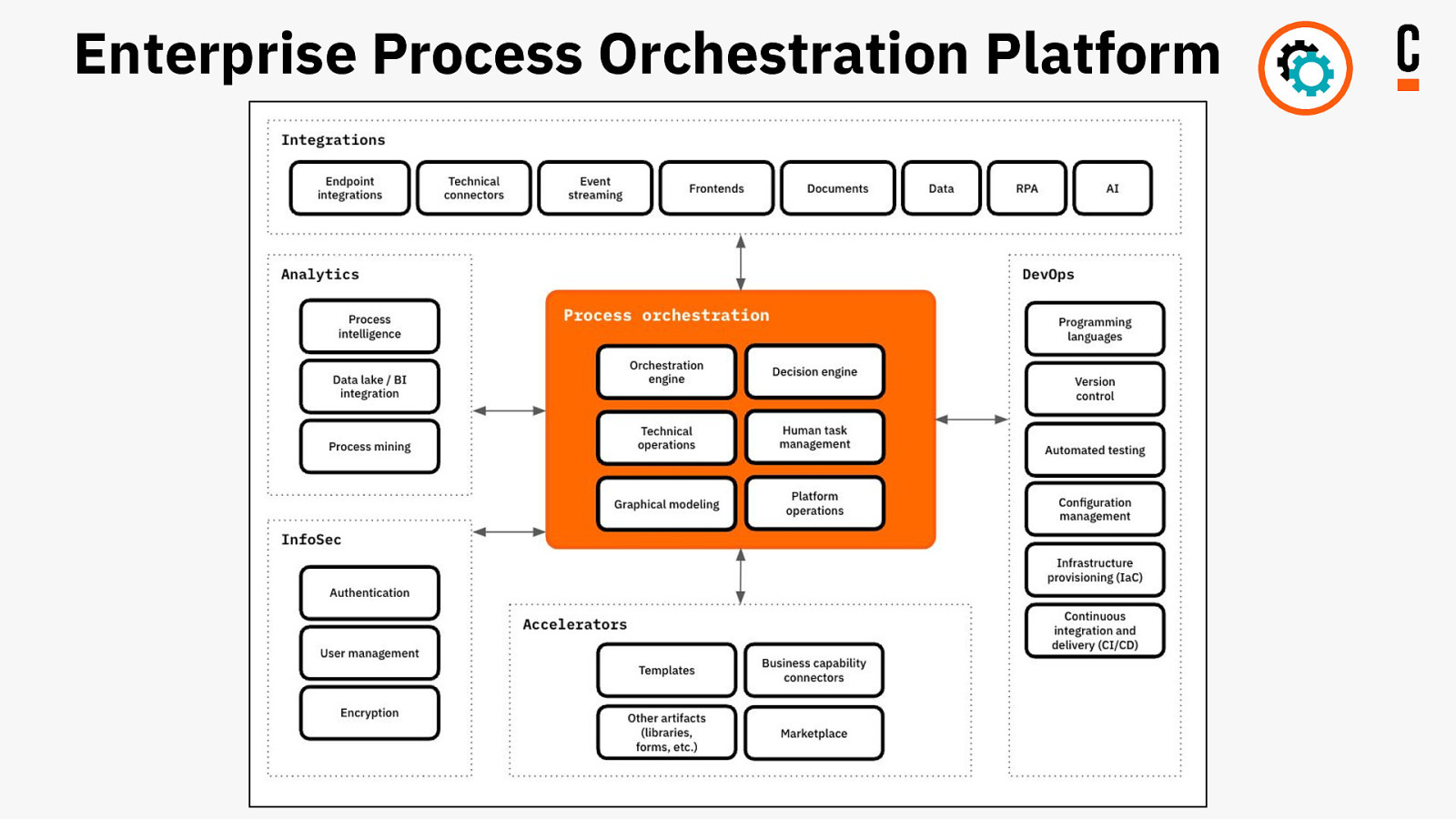
Enterprise Process Orchestration Platform
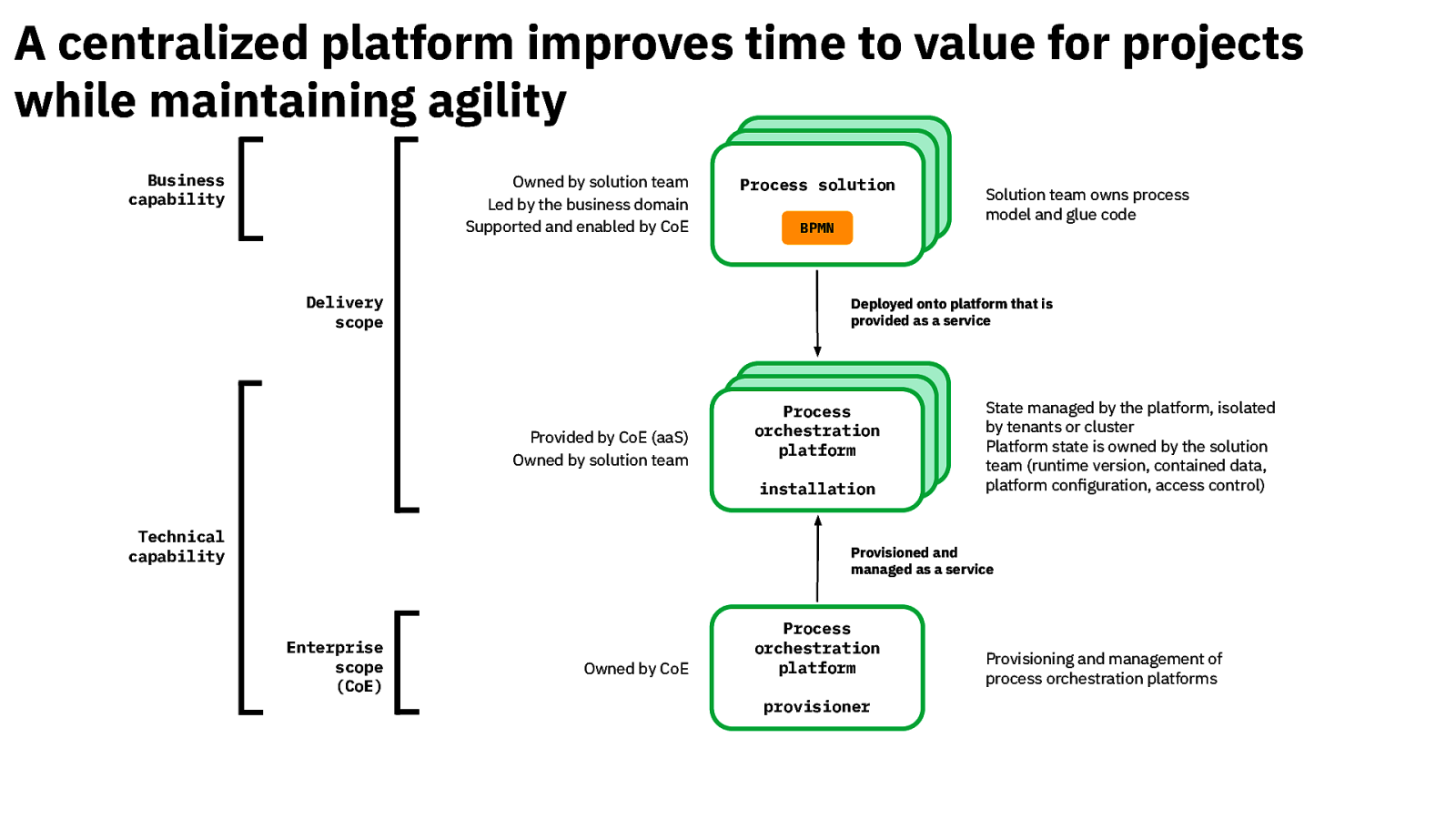
A centralized platform improves time to value for projects while maintaining agility Business capability Owned by solution team Led by the business domain Supported and enabled by CoE Delivery scope Process solution BPMN Solution team owns process model and glue code Deployed onto platform that is provided as a service Provided by CoE (aaS) Owned by solution team Process orchestration platform installation Technical capability State managed by the platform, isolated by tenants or cluster Platform state is owned by the solution team (runtime version, contained data, platform configuration, access control) Provisioned and managed as a service Enterprise scope (CoE) Owned by CoE Process orchestration platform provisioner Provisioning and management of process orchestration platforms
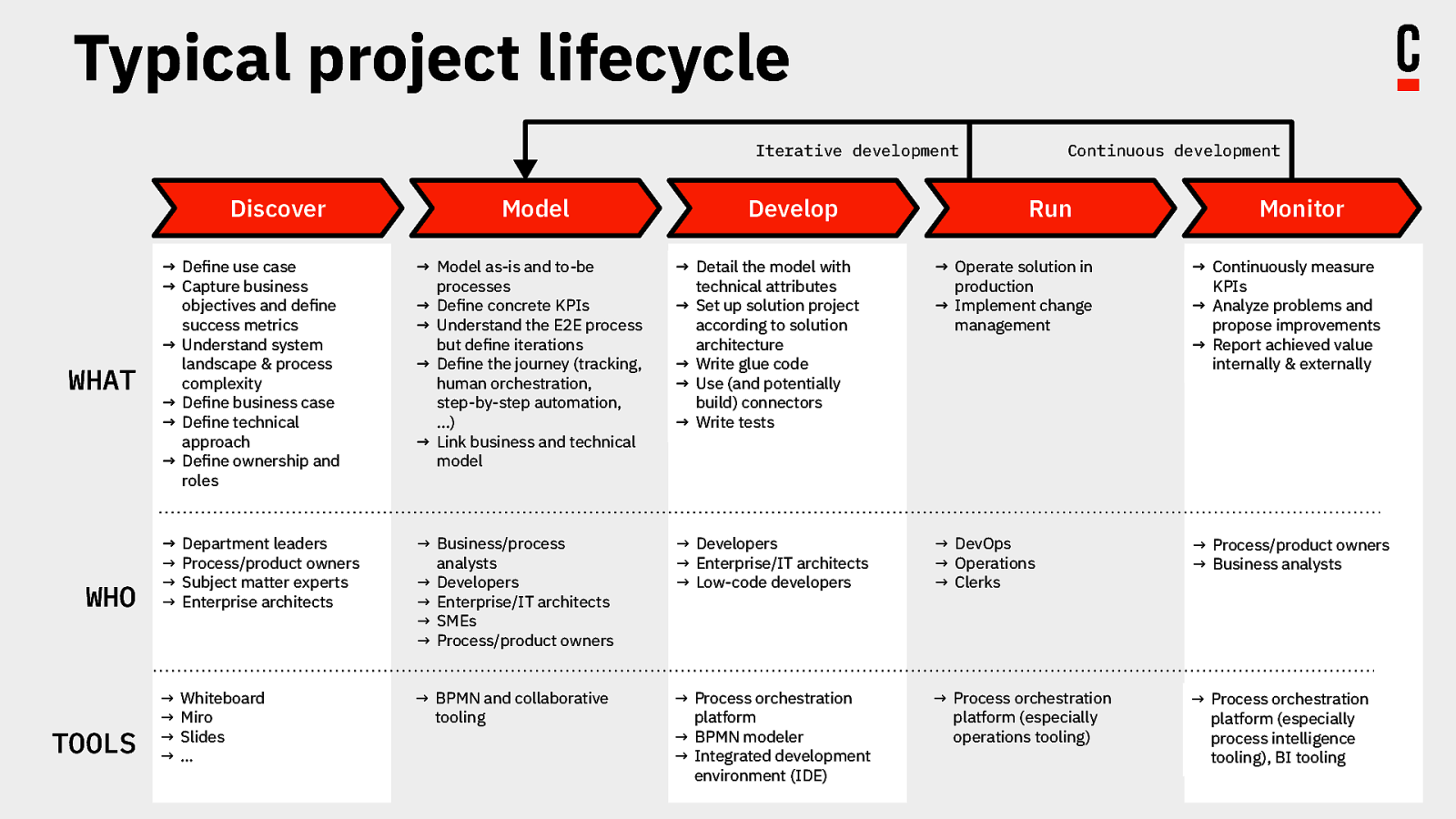
Typical project lifecycle Iterative development Discover Model Develop Continuous development Run Monitor → Define use case → Capture business objectives and define success metrics → Understand system landscape & process complexity → Define business case → Define technical approach → Define ownership and roles → Model as-is and to-be processes → Define concrete KPIs → Understand the E2E process but define iterations → Define the journey (tracking, human orchestration, step-by-step automation, …) → Link business and technical model → Detail the model with technical attributes → Set up solution project according to solution architecture → Write glue code → Use (and potentially build) connectors → Write tests → Operate solution in production → Implement change management → Continuously measure KPIs → Analyze problems and propose improvements → Report achieved value internally & externally Department leaders Process/product owners Subject matter experts Enterprise architects → Business/process analysts → Developers → Enterprise/IT architects → SMEs → Process/product owners → Developers → Enterprise/IT architects → Low-code developers → DevOps → Operations → Clerks → Process/product owners → Business analysts WHO → → → → TOOLS → → → → Whiteboard Miro Slides … → BPMN and collaborative tooling → Process orchestration platform → BPMN modeler → Integrated development environment (IDE) → Process orchestration platform (especially operations tooling) → Process orchestration platform (especially process intelligence tooling), BI tooling WHAT
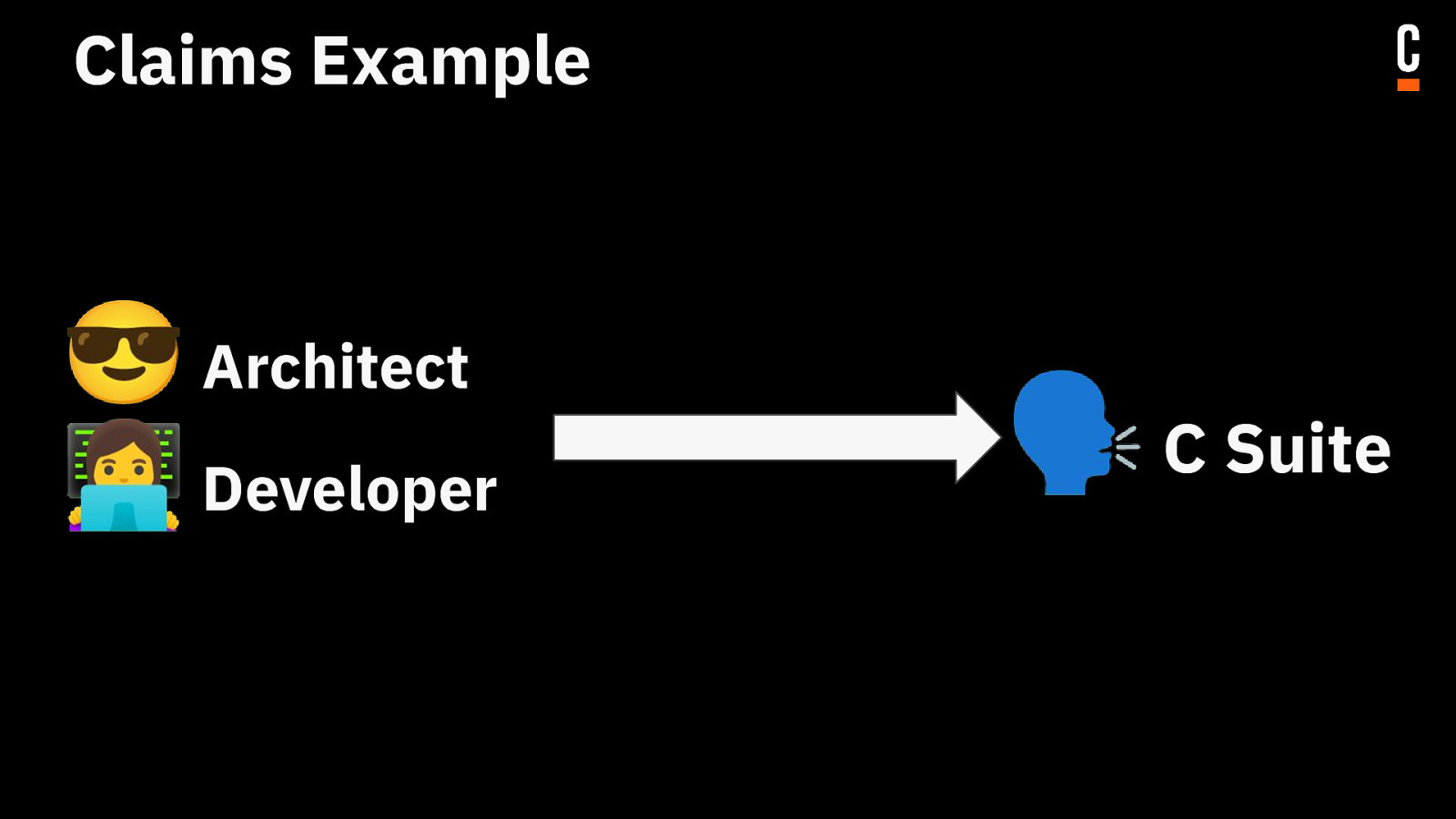
Claims Example 😎 Architect Developer 🗣 C Suite
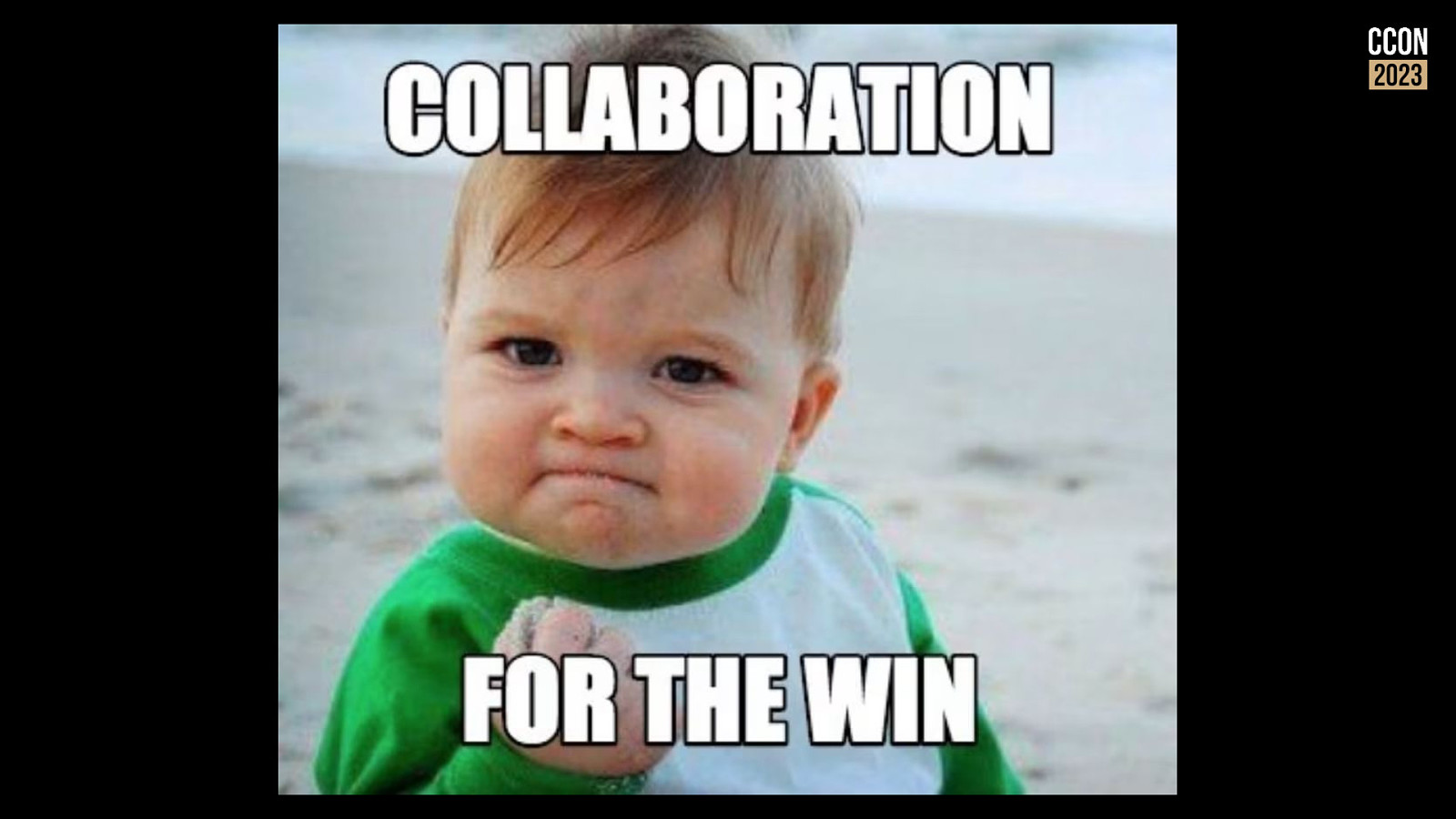
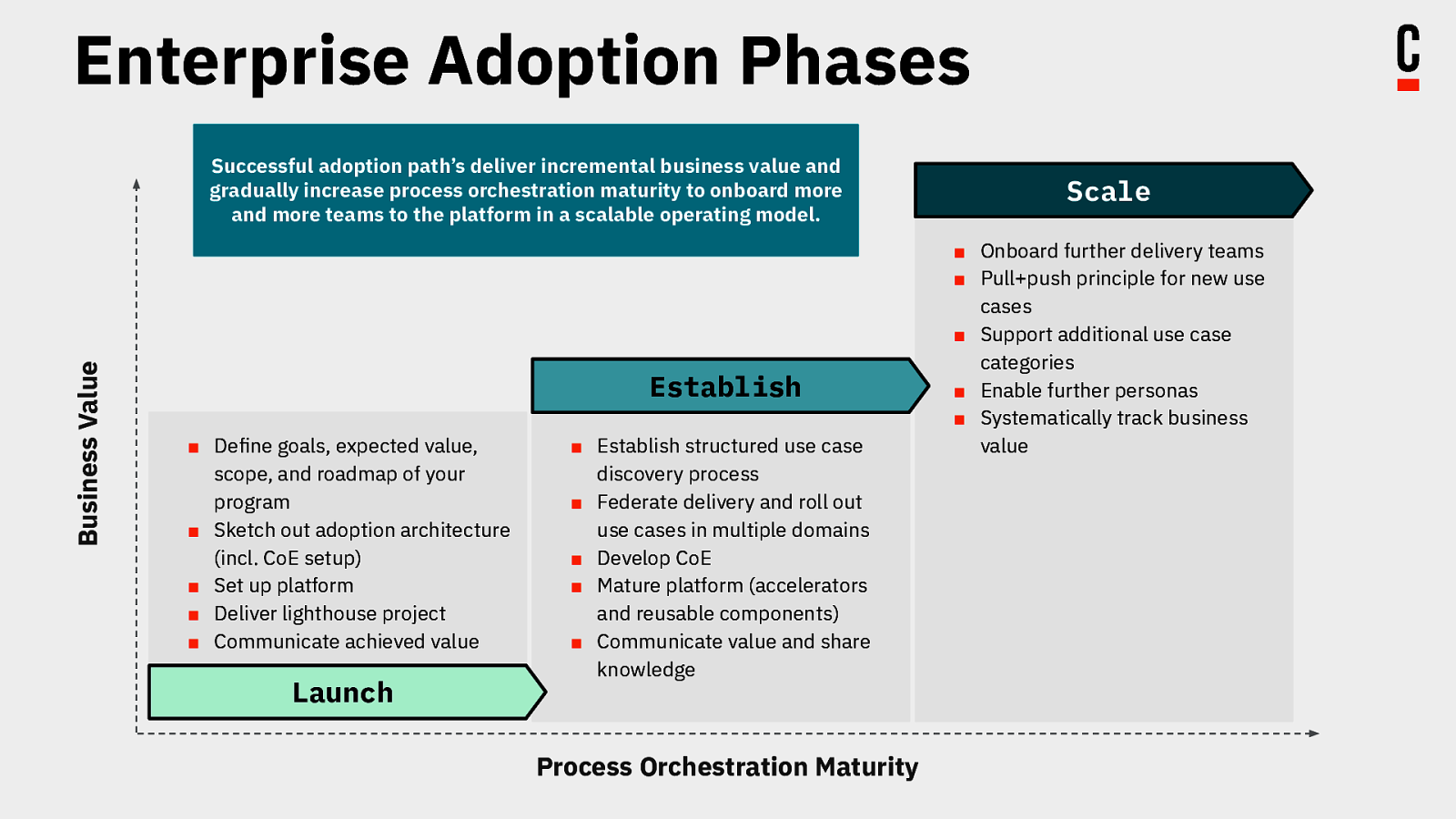
Enterprise Adoption Phases Business Value Successful adoption path’s deliver incremental business value and gradually increase process orchestration maturity to onboard more and more teams to the platform in a scalable operating model. Establish ■ Define goals, expected value, scope, and roadmap of your program ■ Sketch out adoption architecture (incl. CoE setup) ■ Set up platform ■ Deliver lighthouse project ■ Communicate achieved value Launch ■ Establish structured use case discovery process ■ Federate delivery and roll out use cases in multiple domains ■ Develop CoE ■ Mature platform (accelerators and reusable components) ■ Communicate value and share knowledge Process Orchestration Maturity Scale ■ Onboard further delivery teams ■ Pull+push principle for new use cases ■ Support additional use case categories ■ Enable further personas ■ Systematically track business value

Typical high-level adoption Roadmap Discover Q1 Vision & Motivation Deliver Q3 Q2 Scale Q4 Q1 Q2 Q3 Q1 Q4 Q2 Q3 Q4 Strategy Alignment Develop roadmap Structure Define operating model and team structure Build Center of Excellence Delivery Focus Enablement Focus Technology Setup Camunda as integrated platform Operations and Continuous Improvement Setup Refinement Design architecture and governance Build accelerators Solution Delivery Domain A Use Case 1 Use Case 2 Use Case 3 Domain B Use Case 1 Use Case 2 Discovery MVP Live MVP Discovery MVP Discovery Discovery Prod Live MVP Live Live Discovery MVP Discovery Prod Prod Prod Live MVP Prod Live Prod Measurement Continuous Value Tracking & Reporting 48
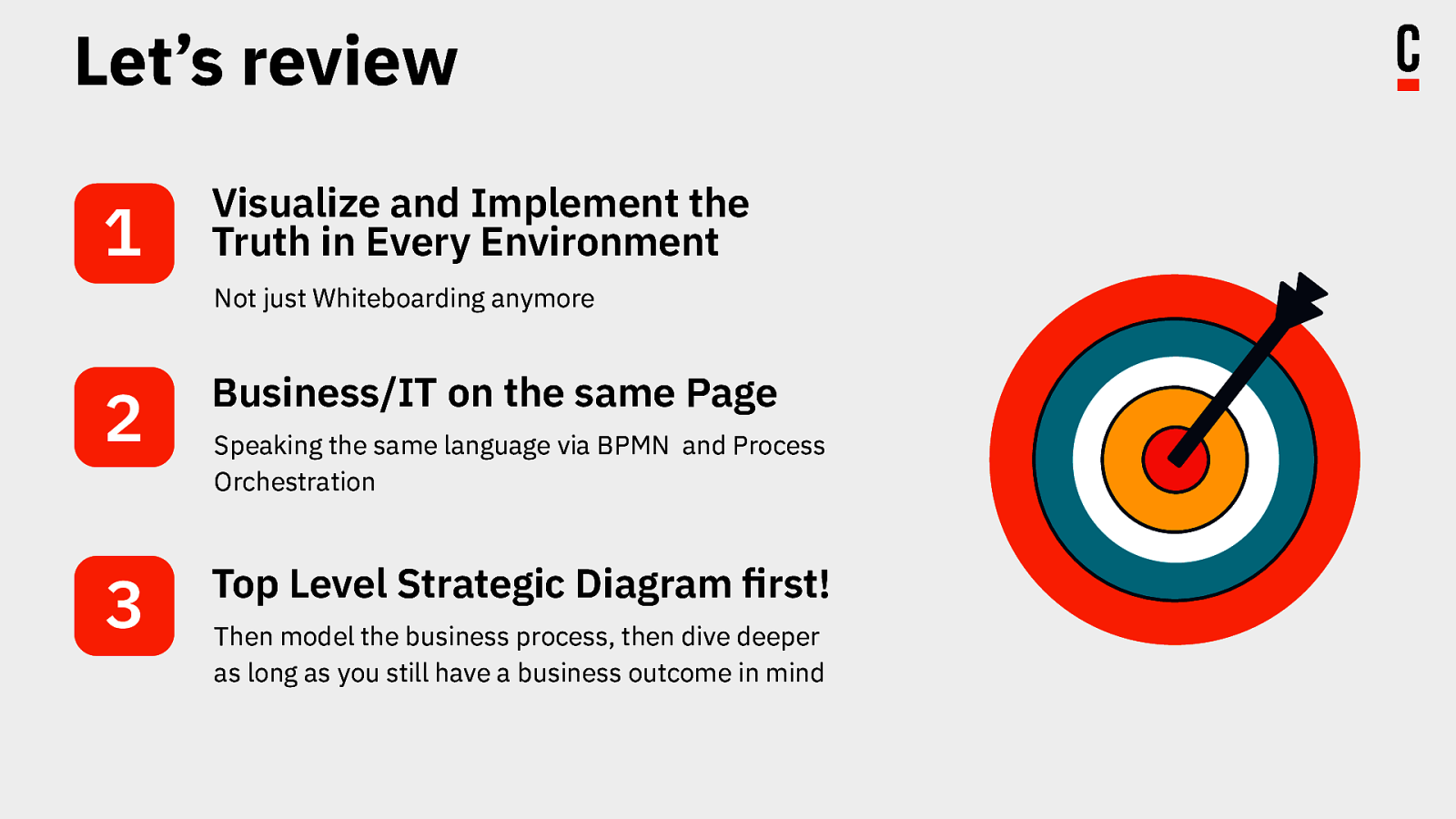
Let’s review 1 Visualize and Implement the Truth in Every Environment Not just Whiteboarding anymore 2 Business/IT on the same Page 3 Top Level Strategic Diagram first! Speaking the same language via BPMN and Process Orchestration Then model the business process, then dive deeper as long as you still have a business outcome in mind
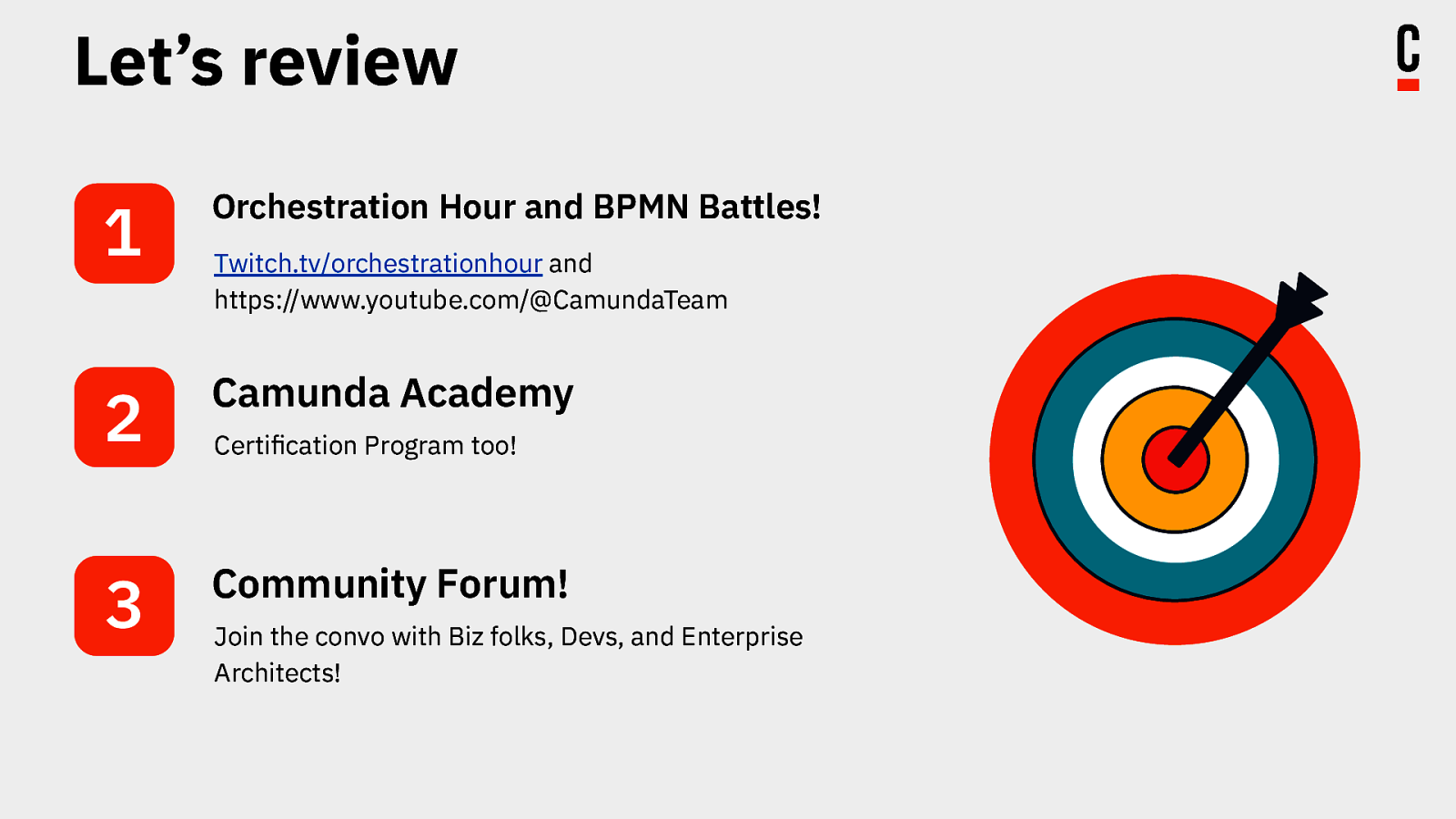
Let’s review 1 Orchestration Hour and BPMN Battles! 2 Camunda Academy 3 Community Forum! Twitch.tv/orchestrationhour and https://www.youtube.com/@CamundaTeam Certification Program too! Join the convo with Biz folks, Devs, and Enterprise Architects!
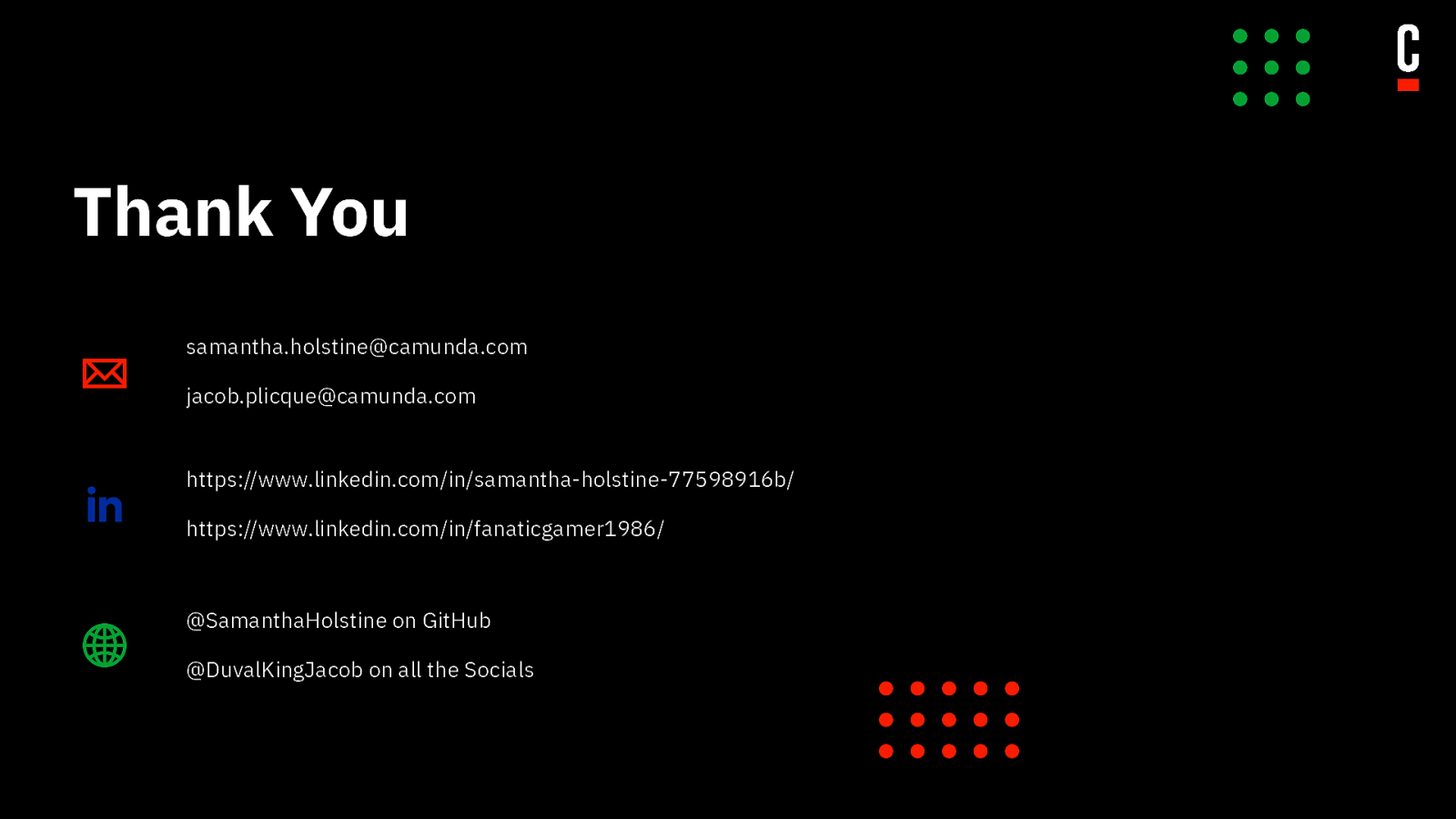
Thank You samantha.holstine@camunda.com jacob.plicque@camunda.com https://www.linkedin.com/in/samantha-holstine-77598916b/ https://www.linkedin.com/in/fanaticgamer1986/ @SamanthaHolstine on GitHub @DuvalKingJacob on all the Socials